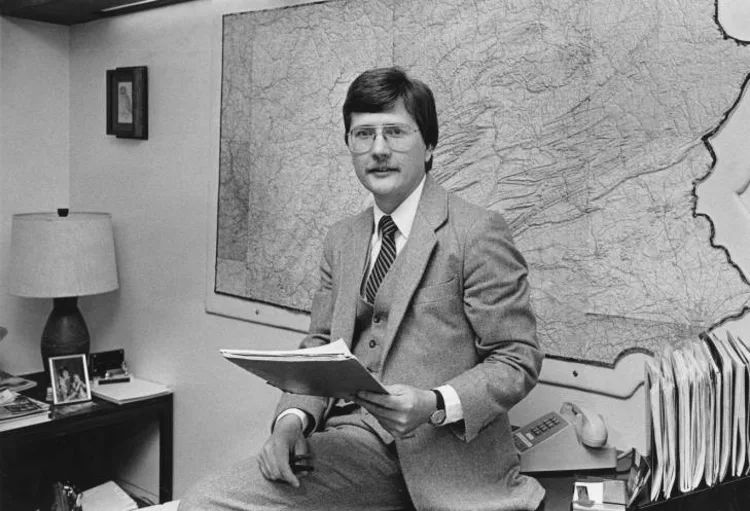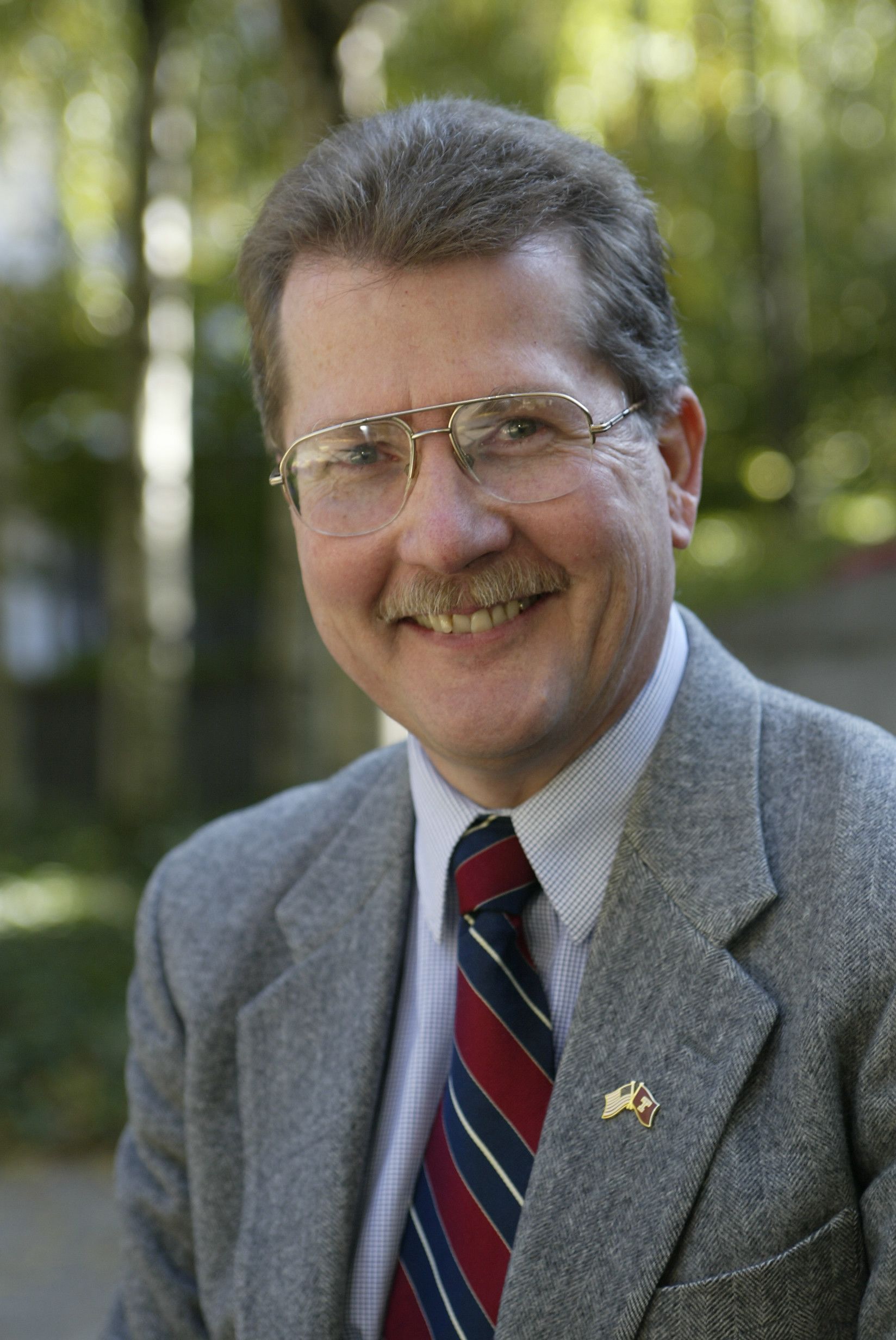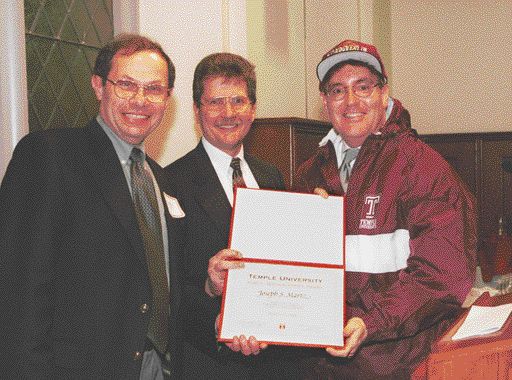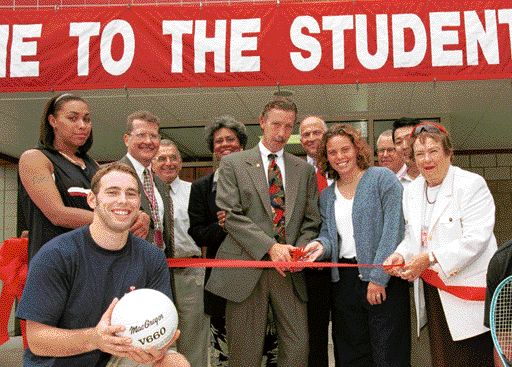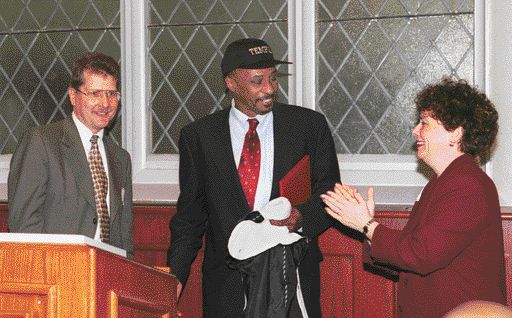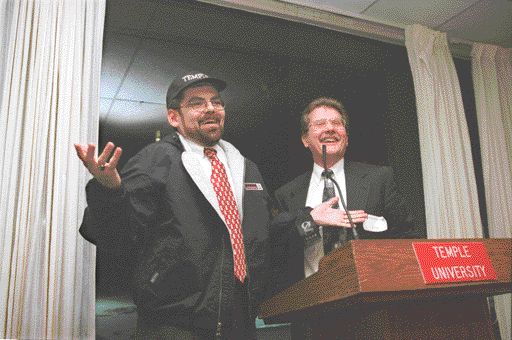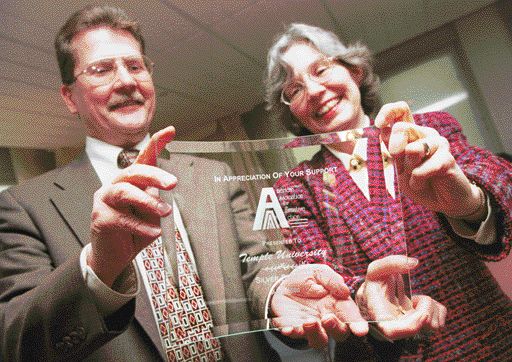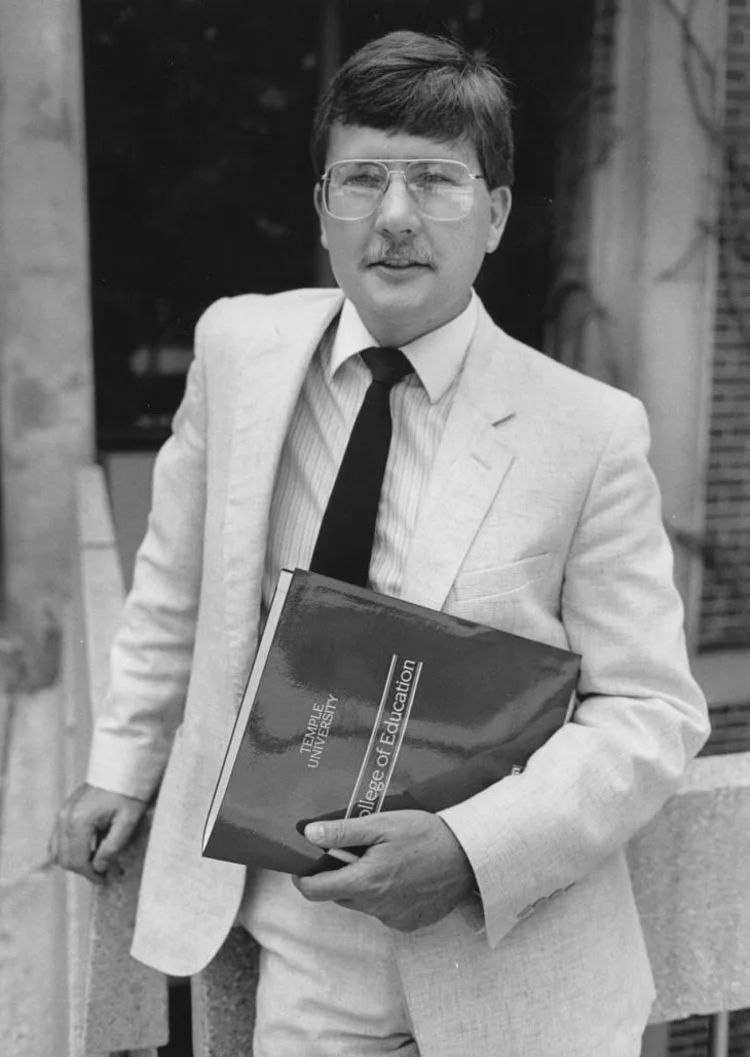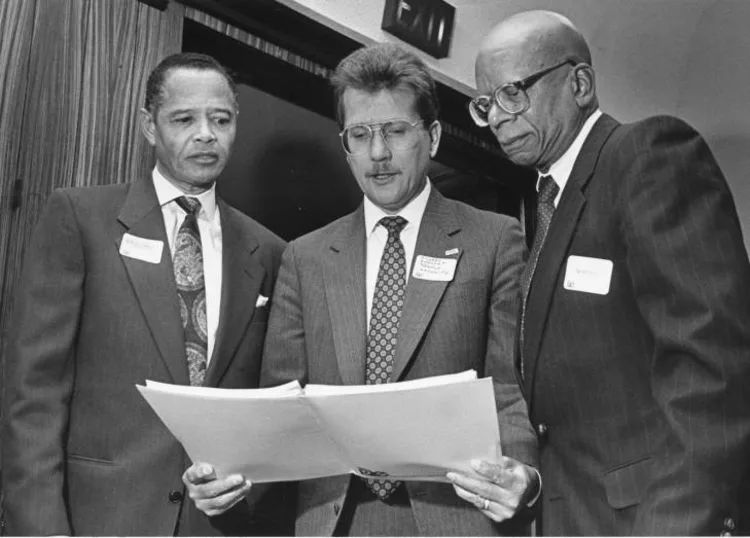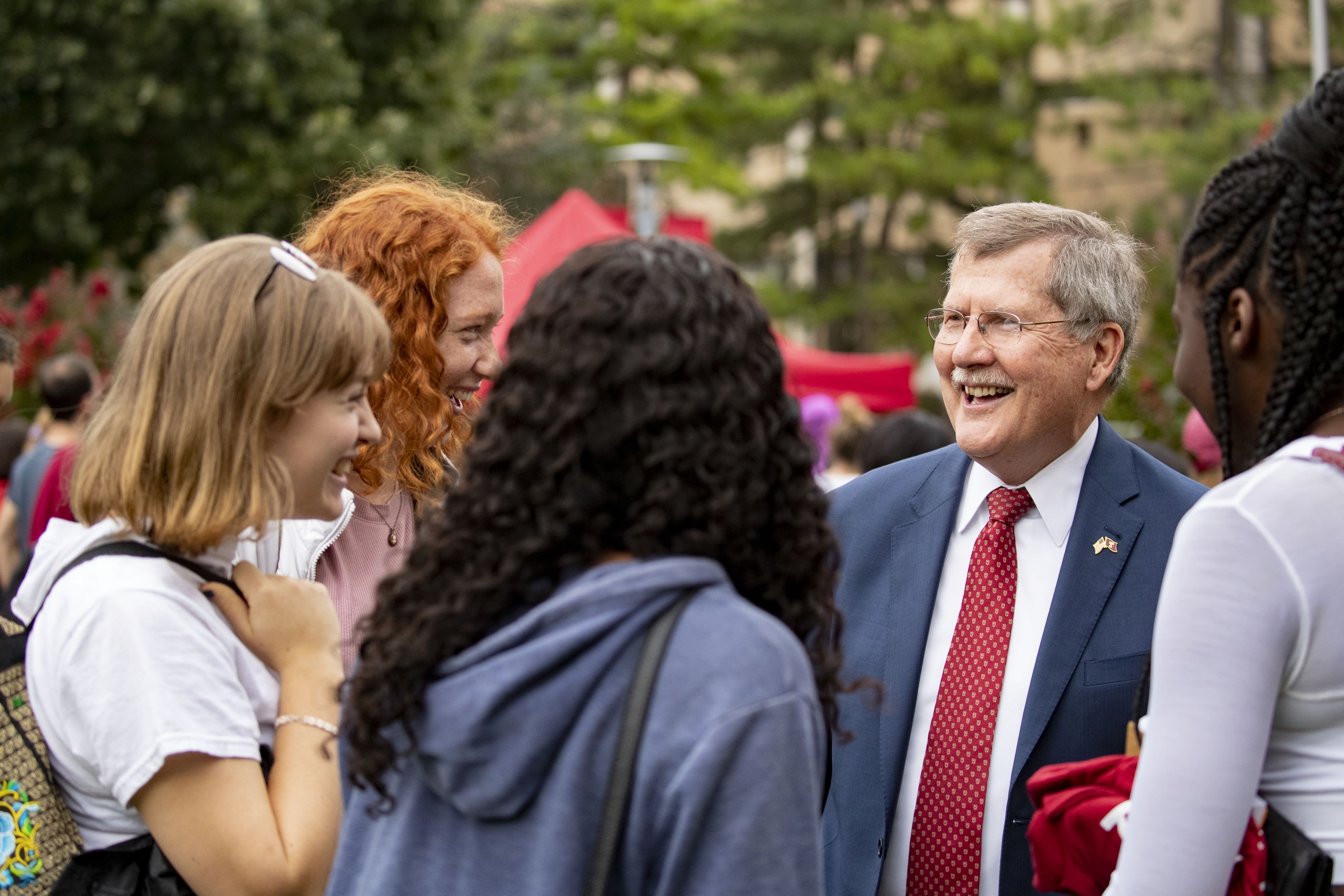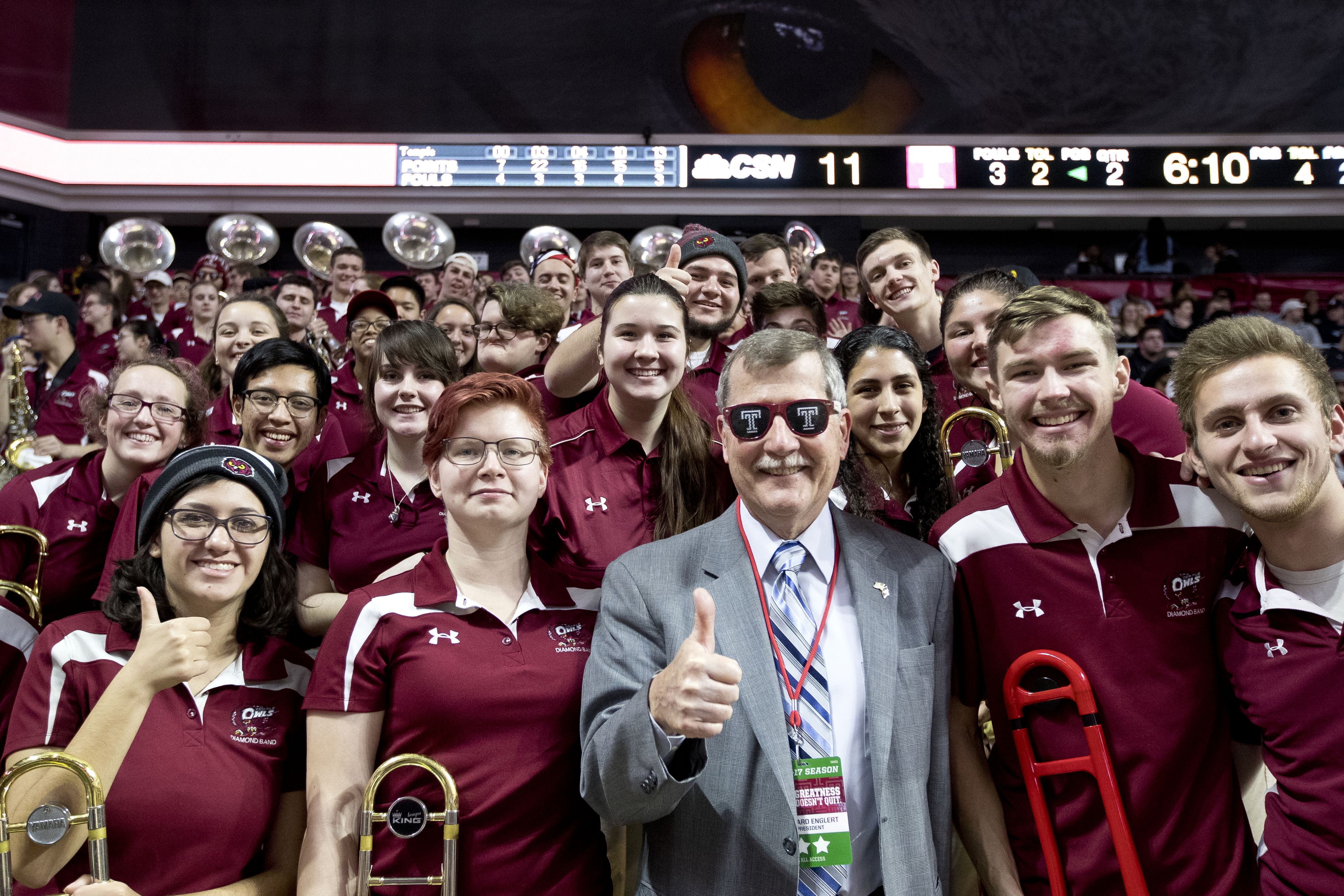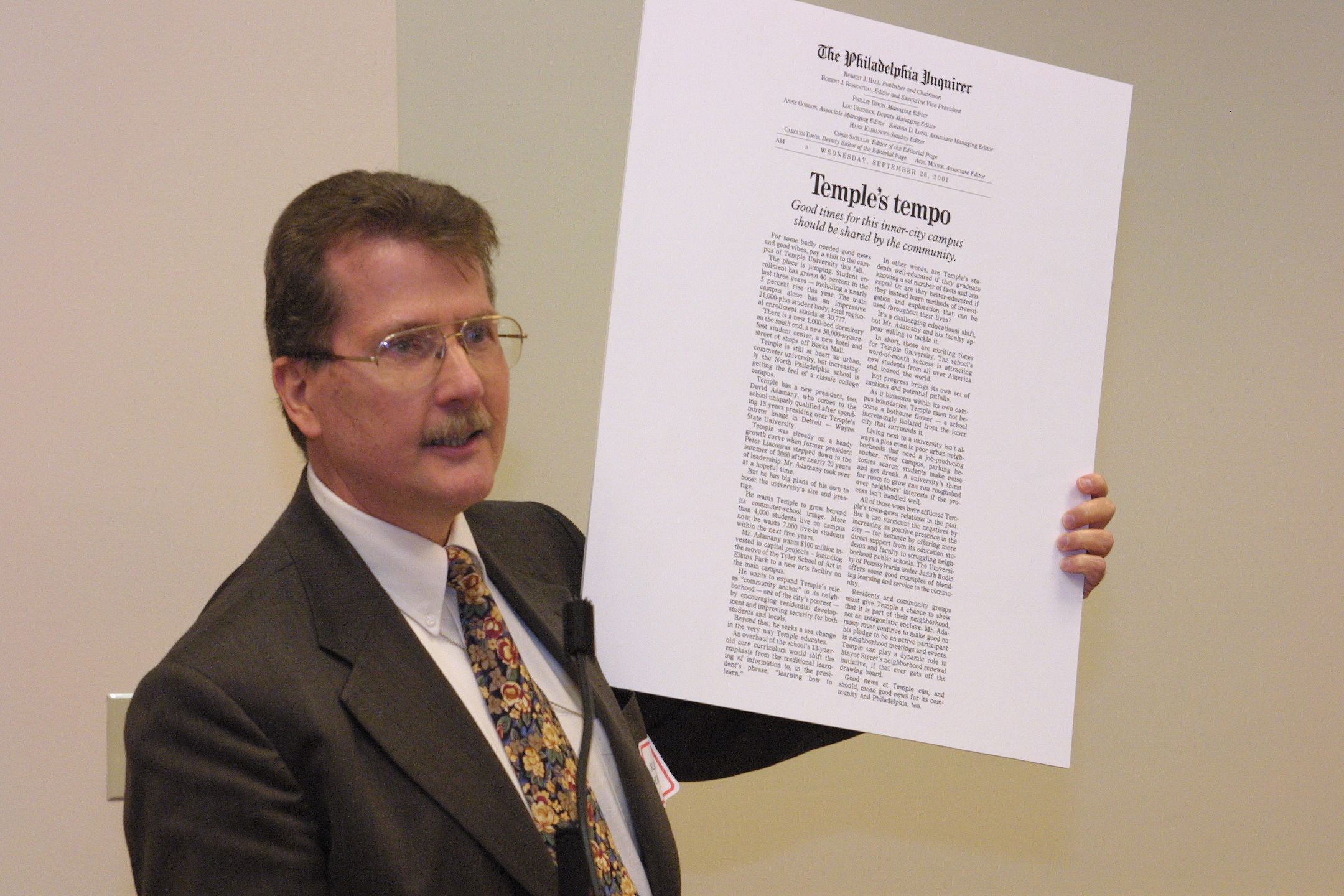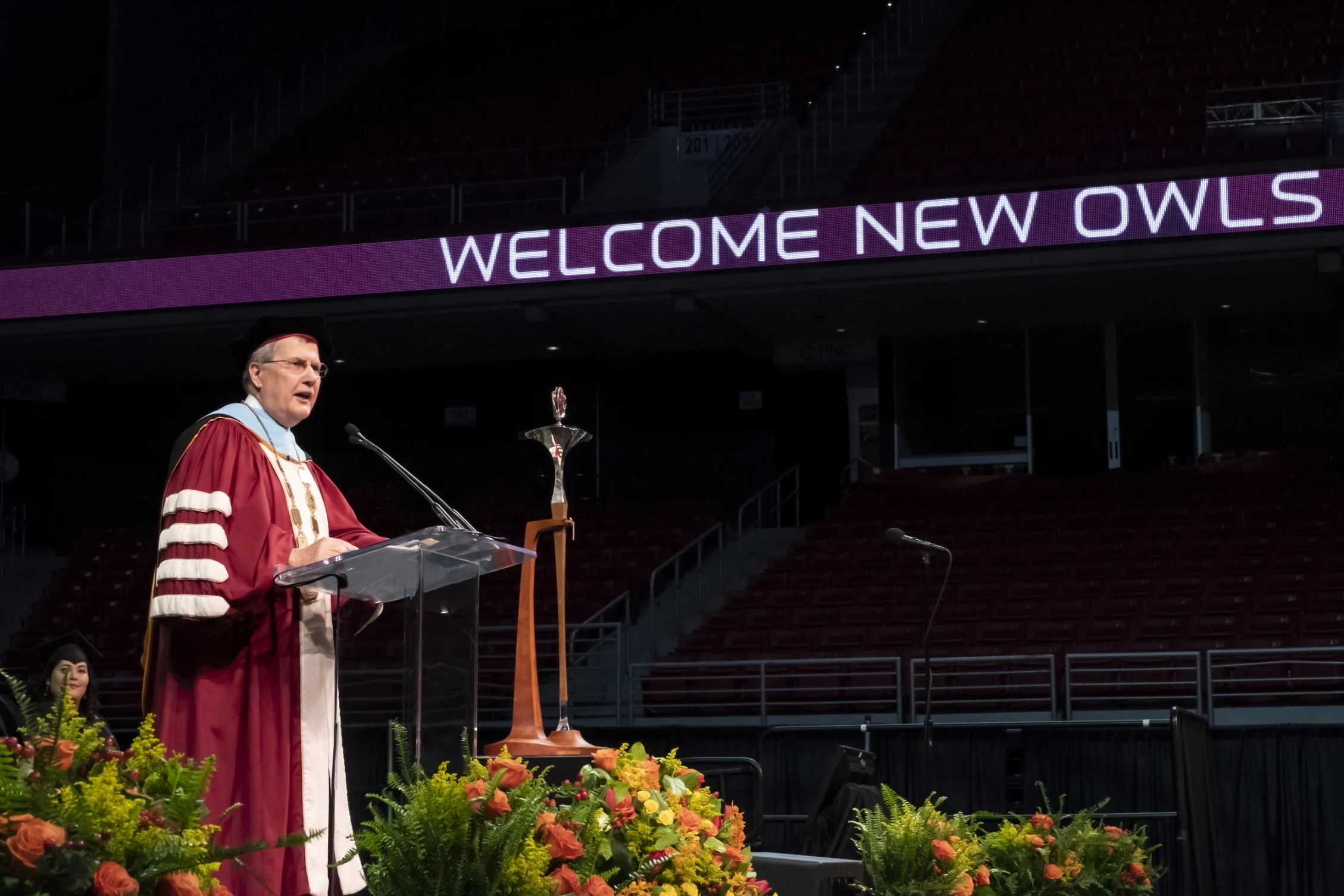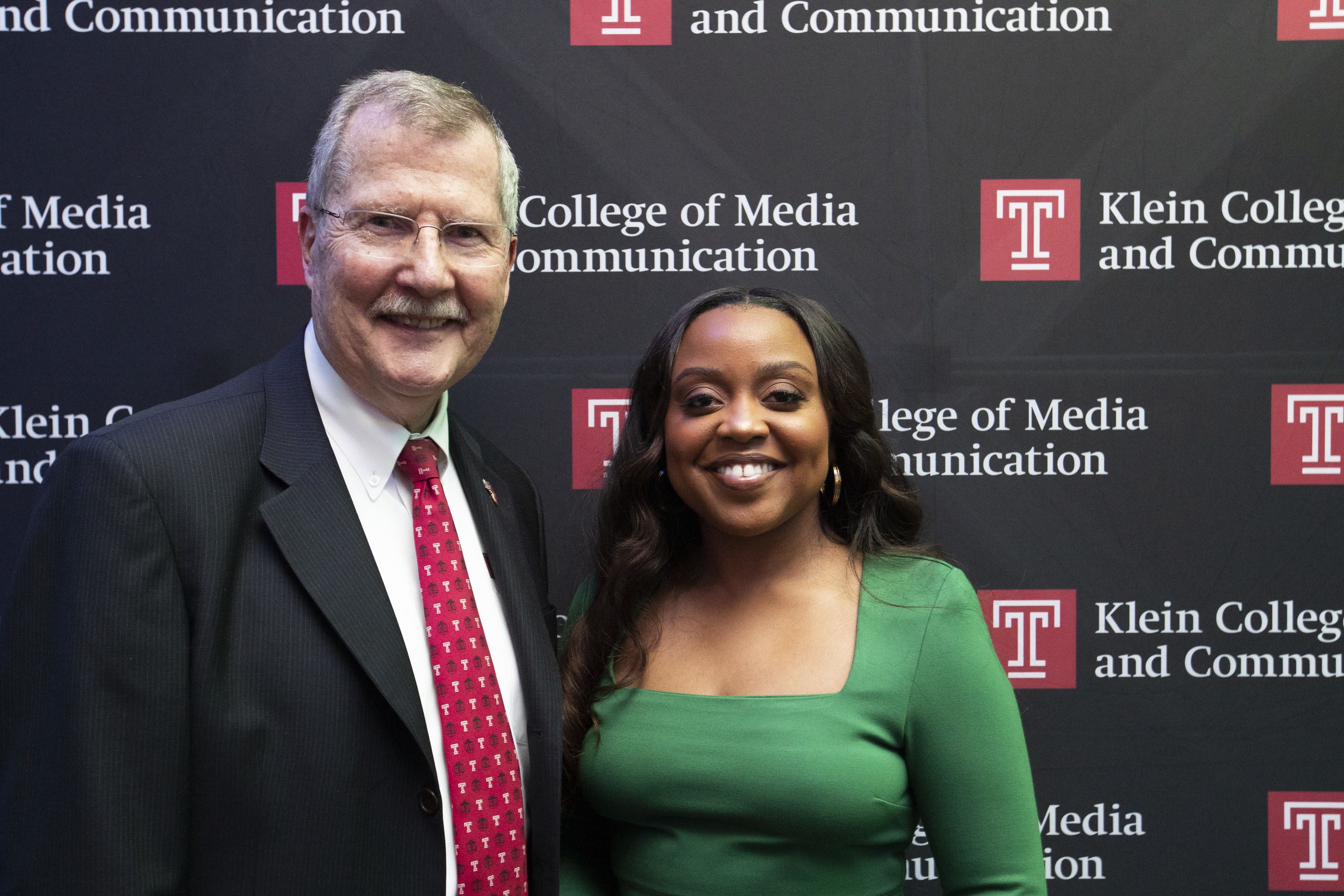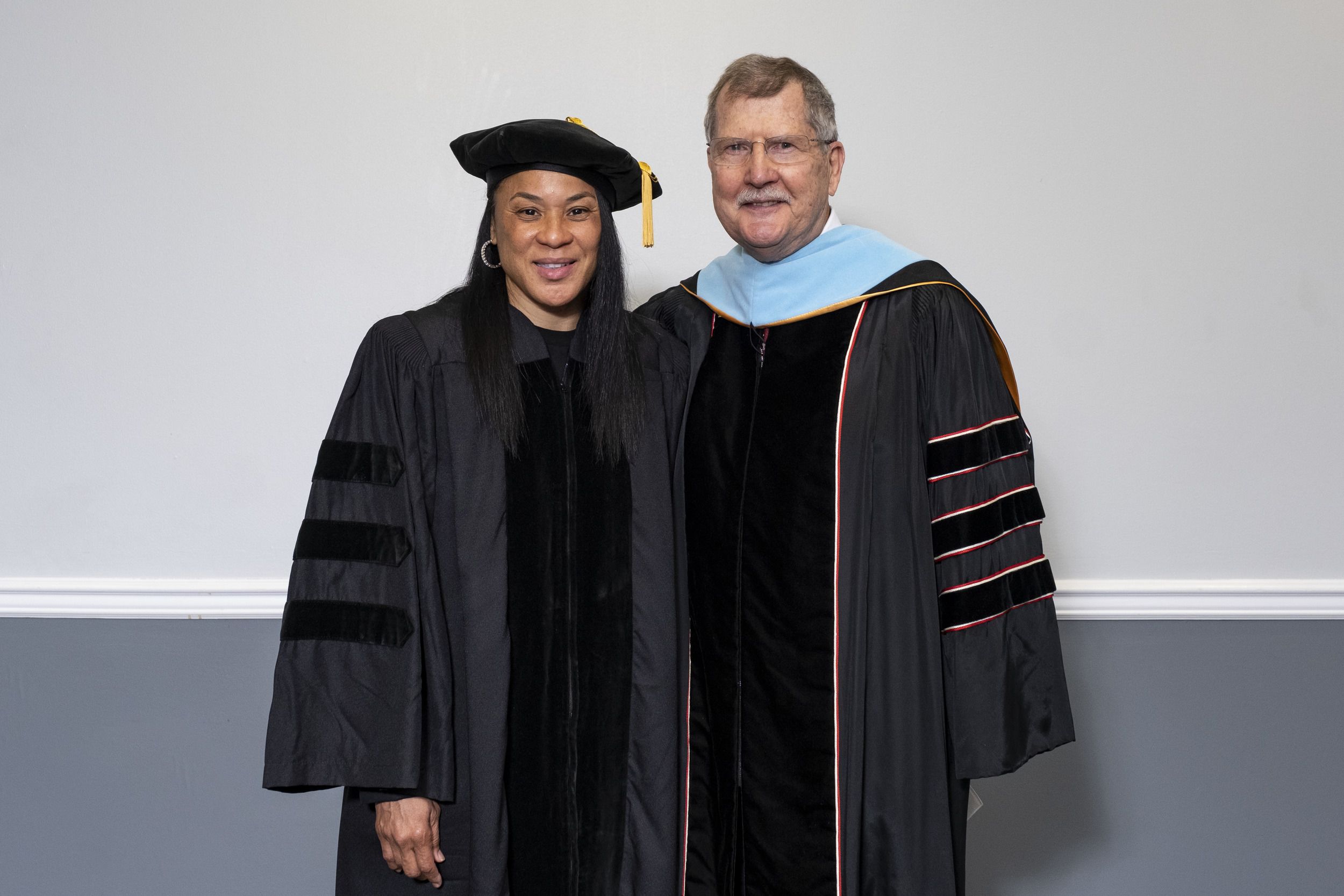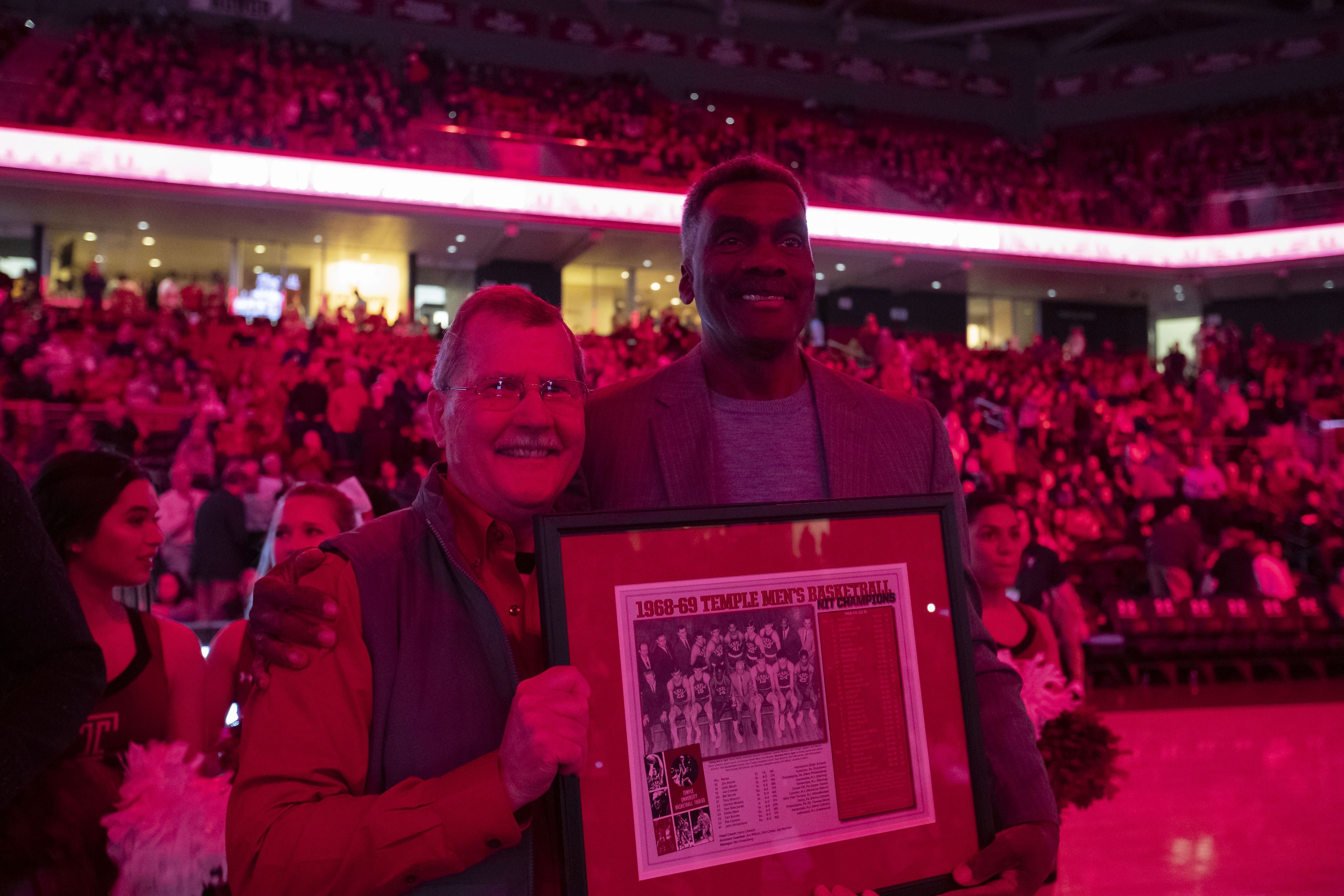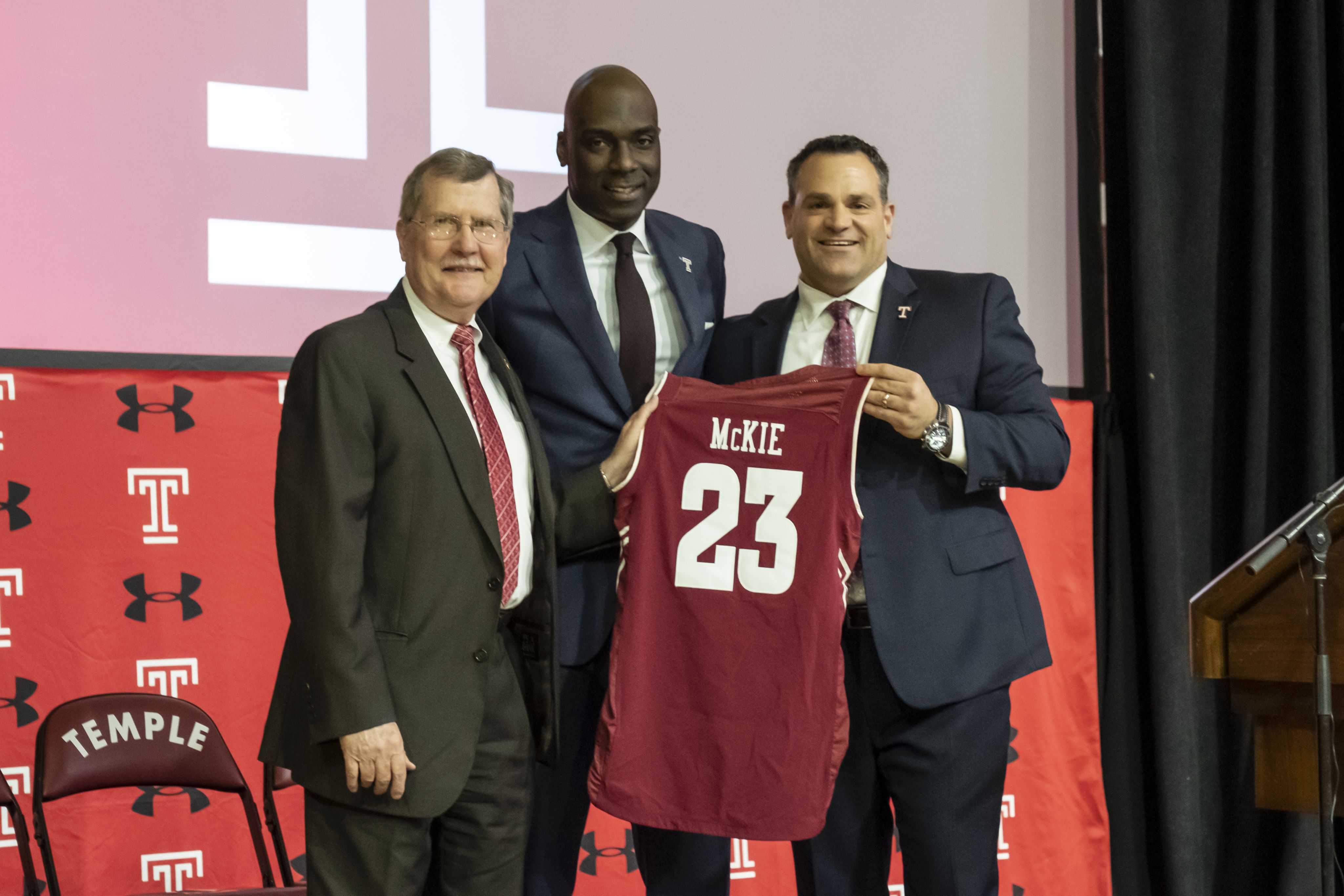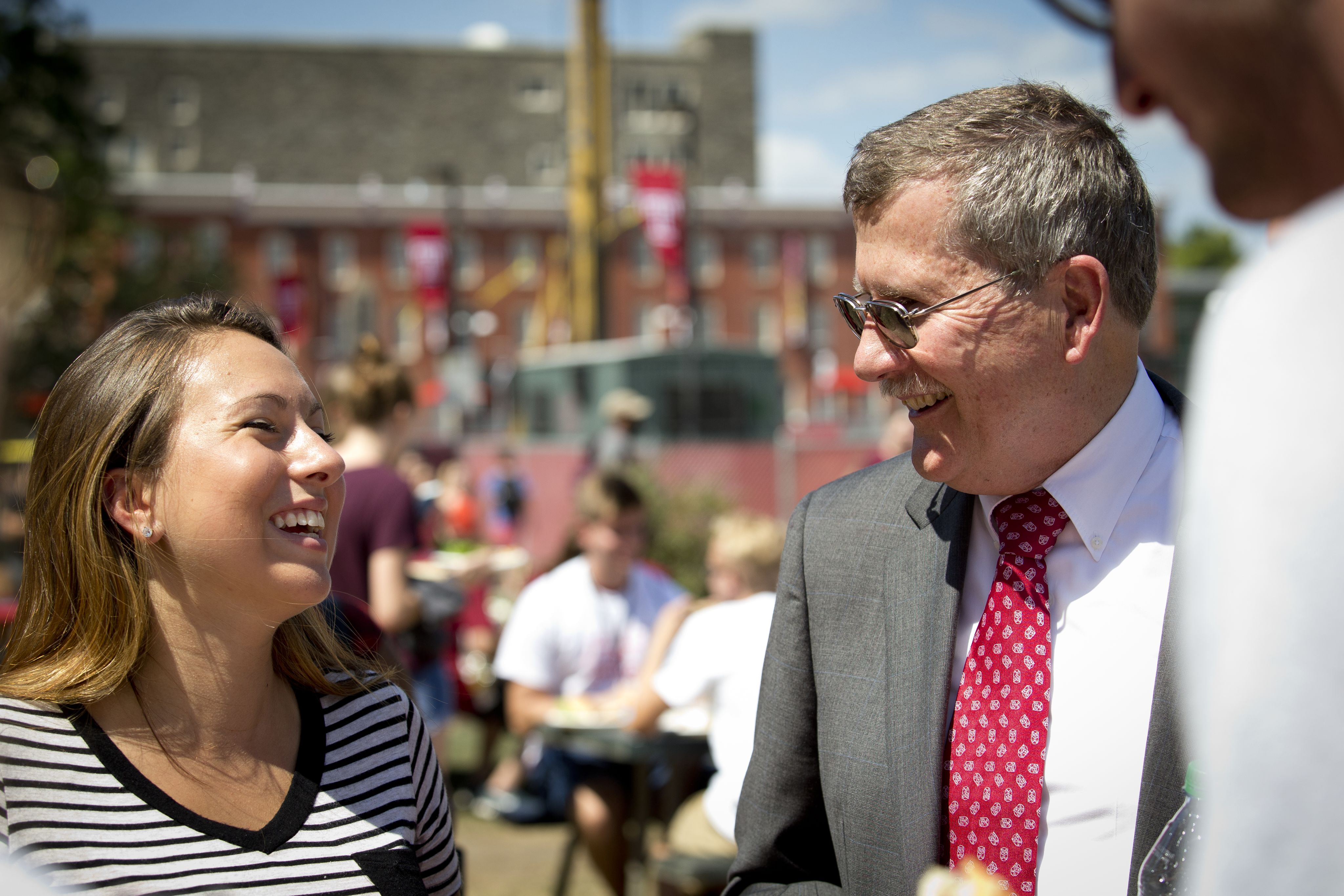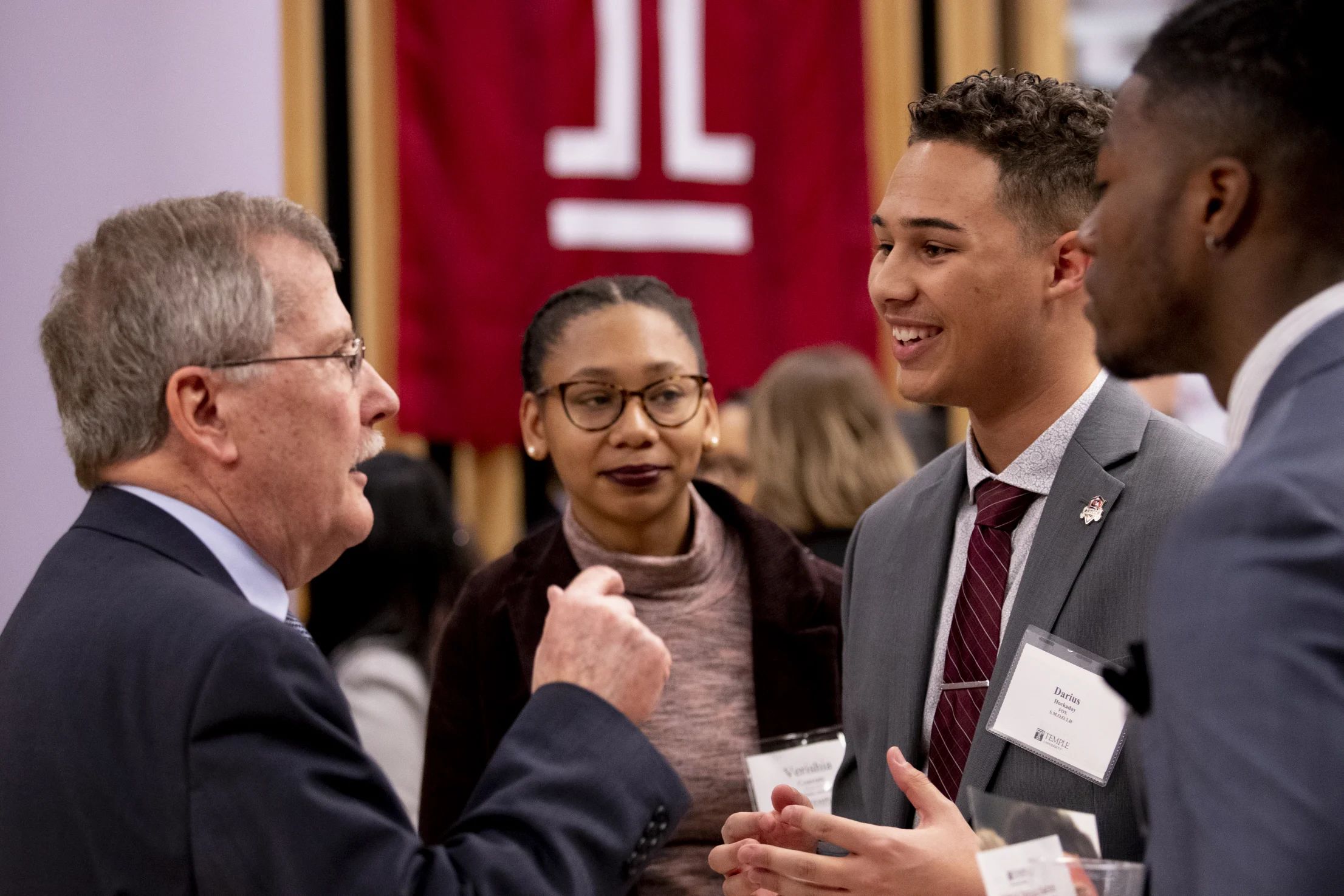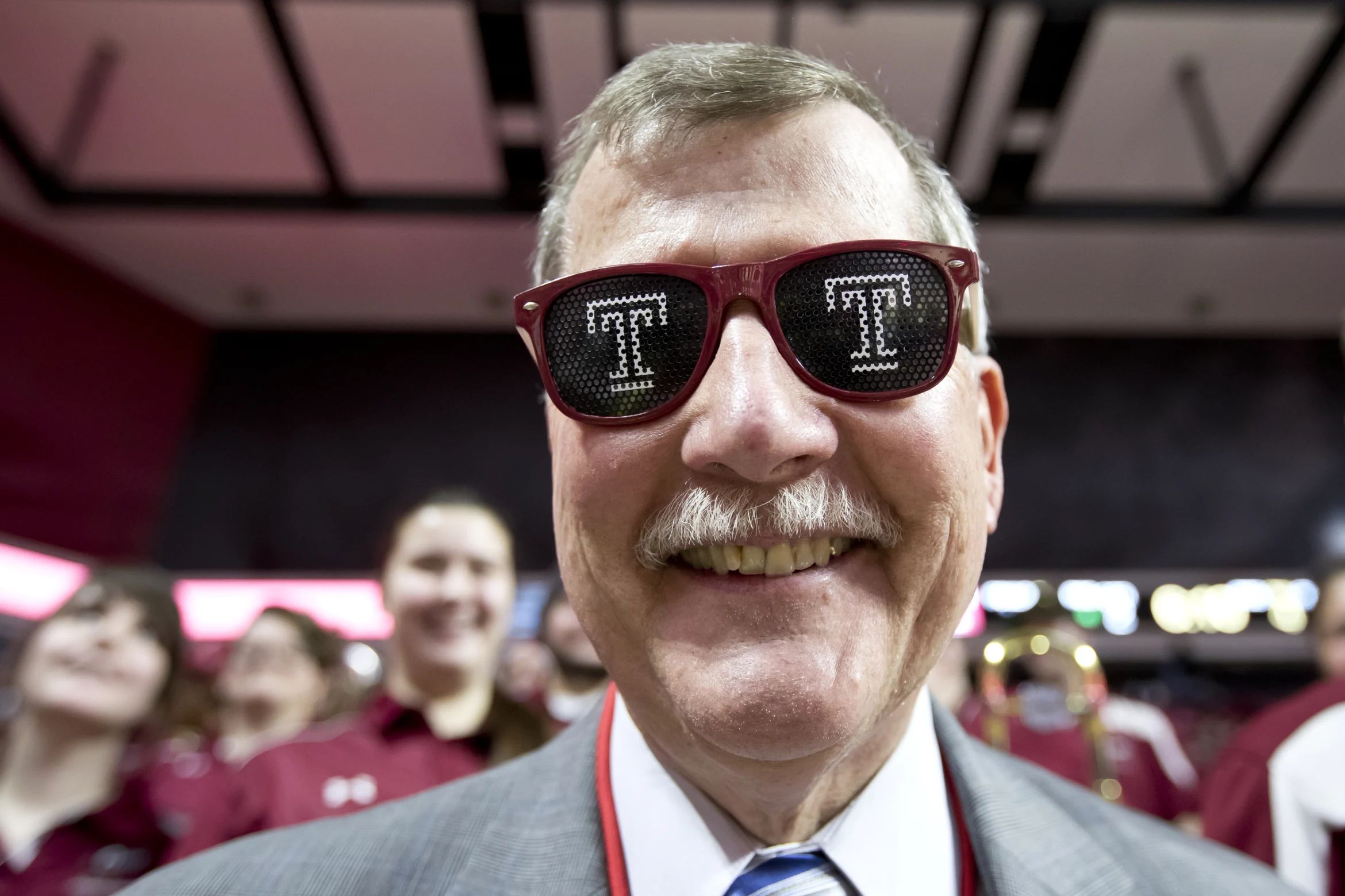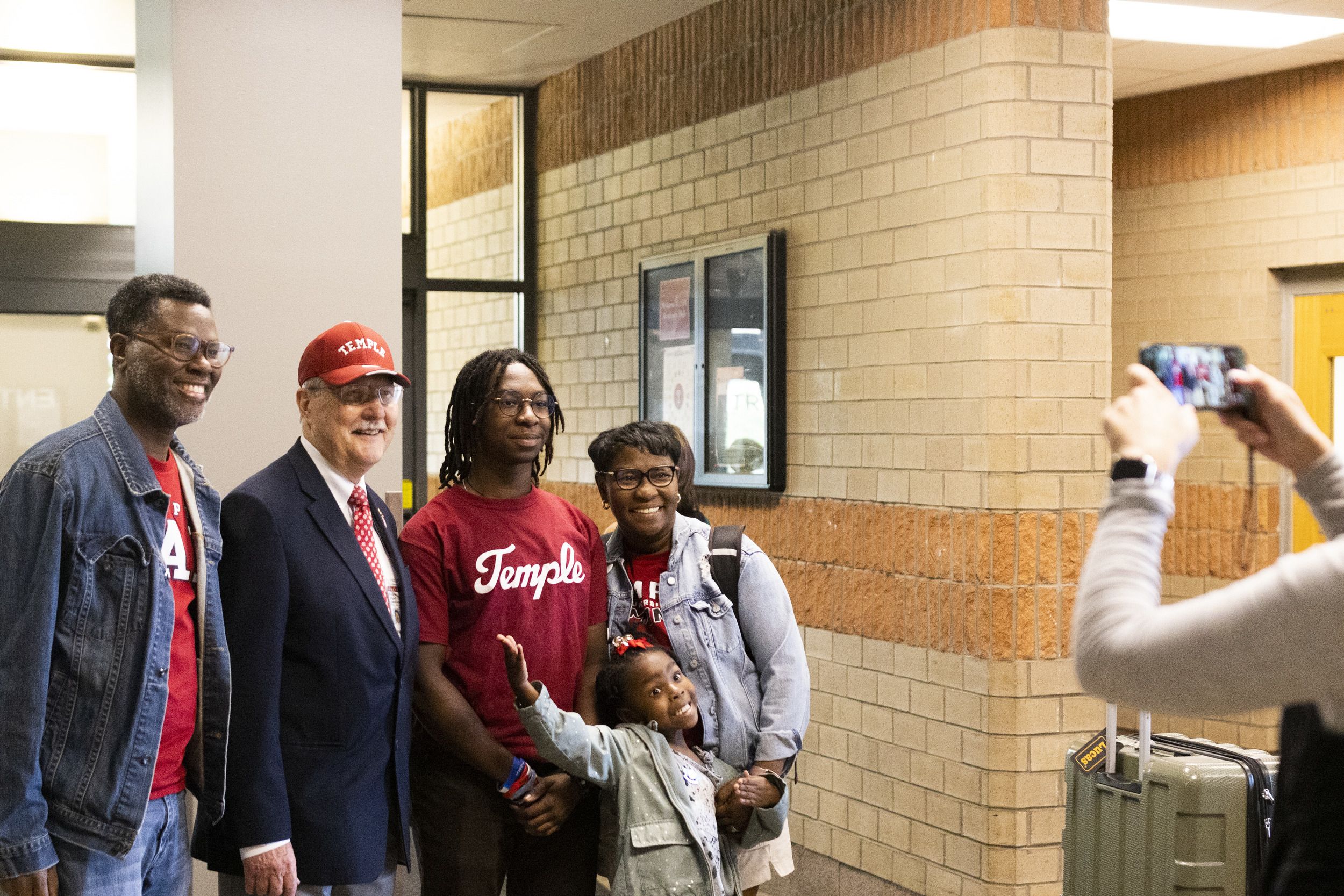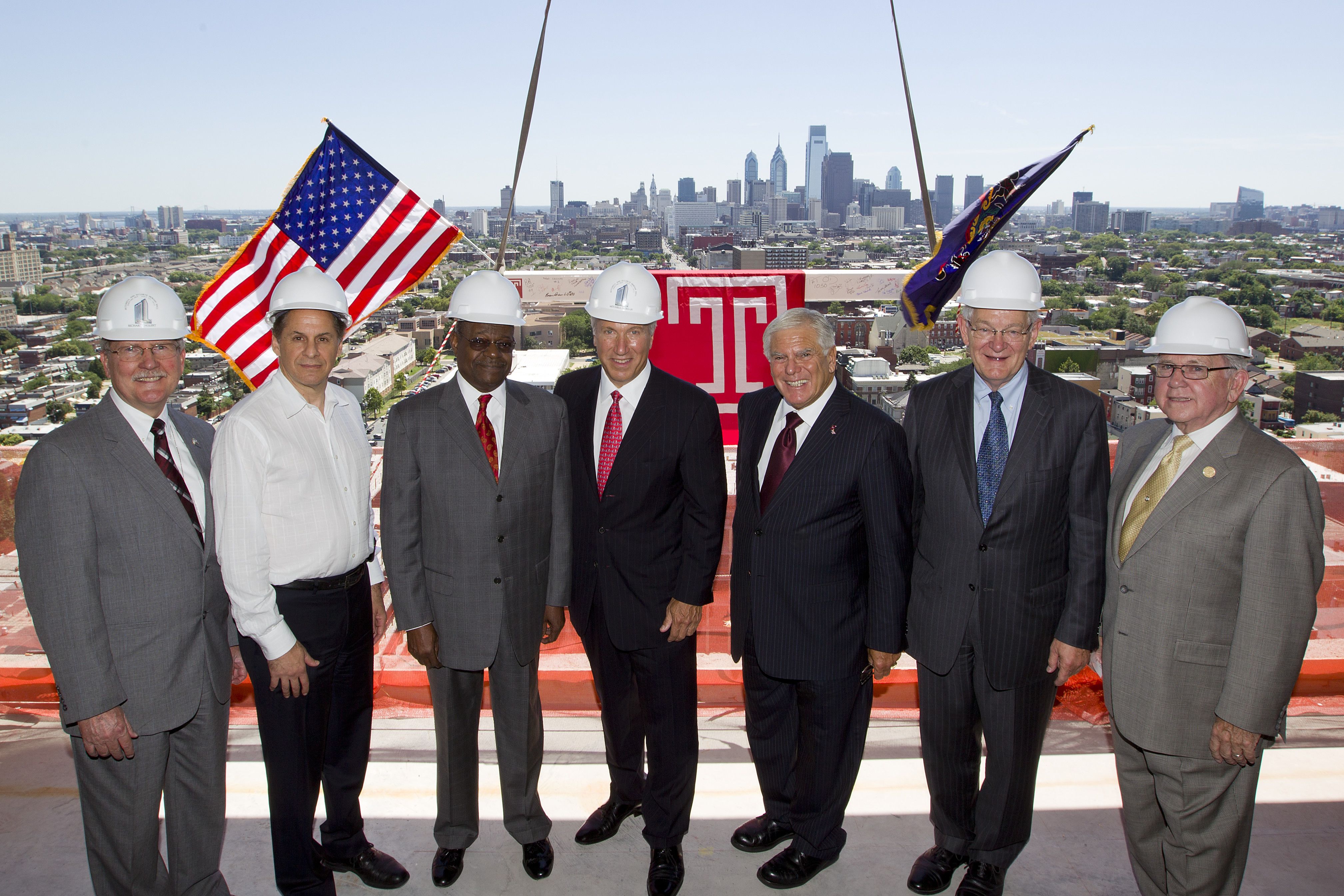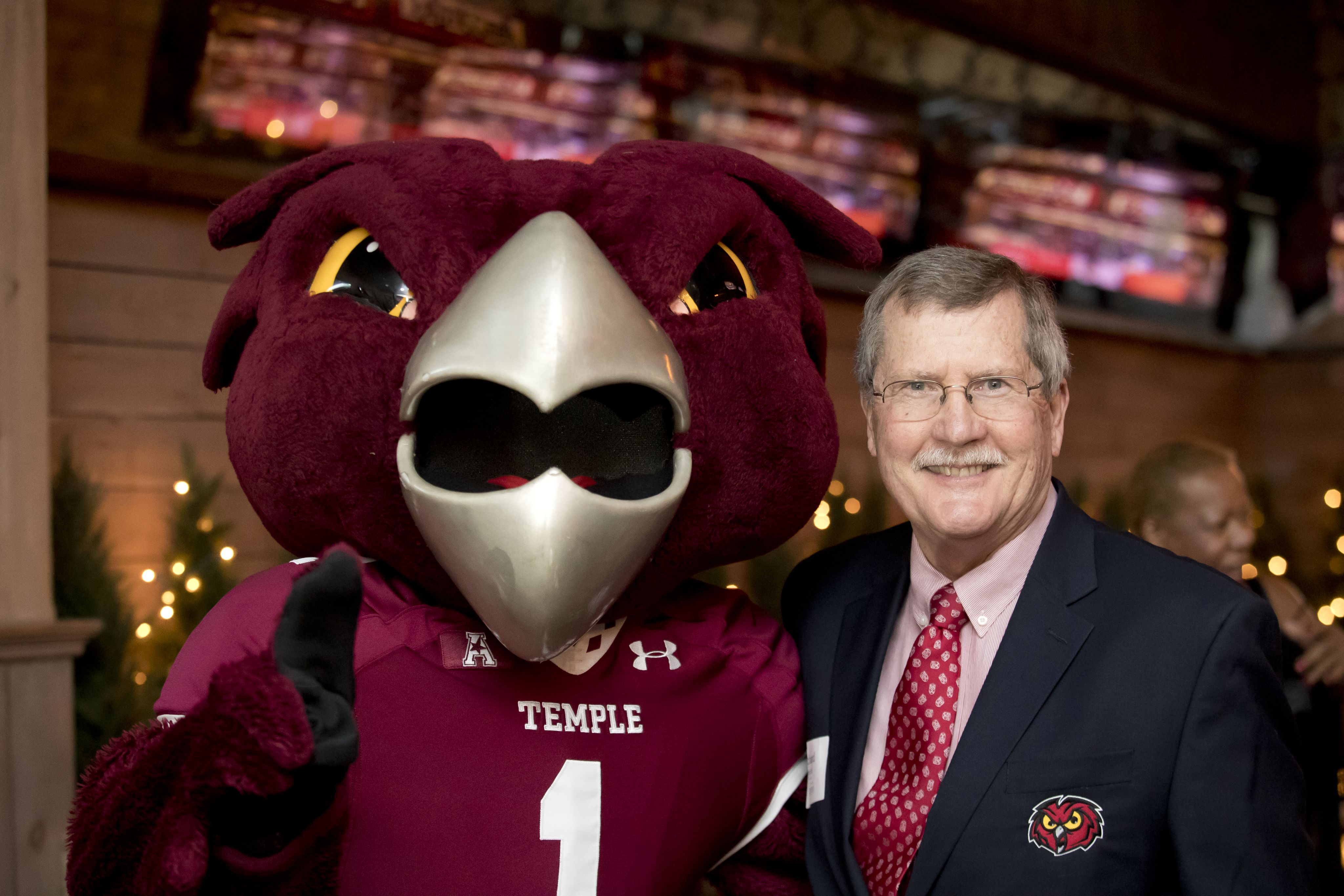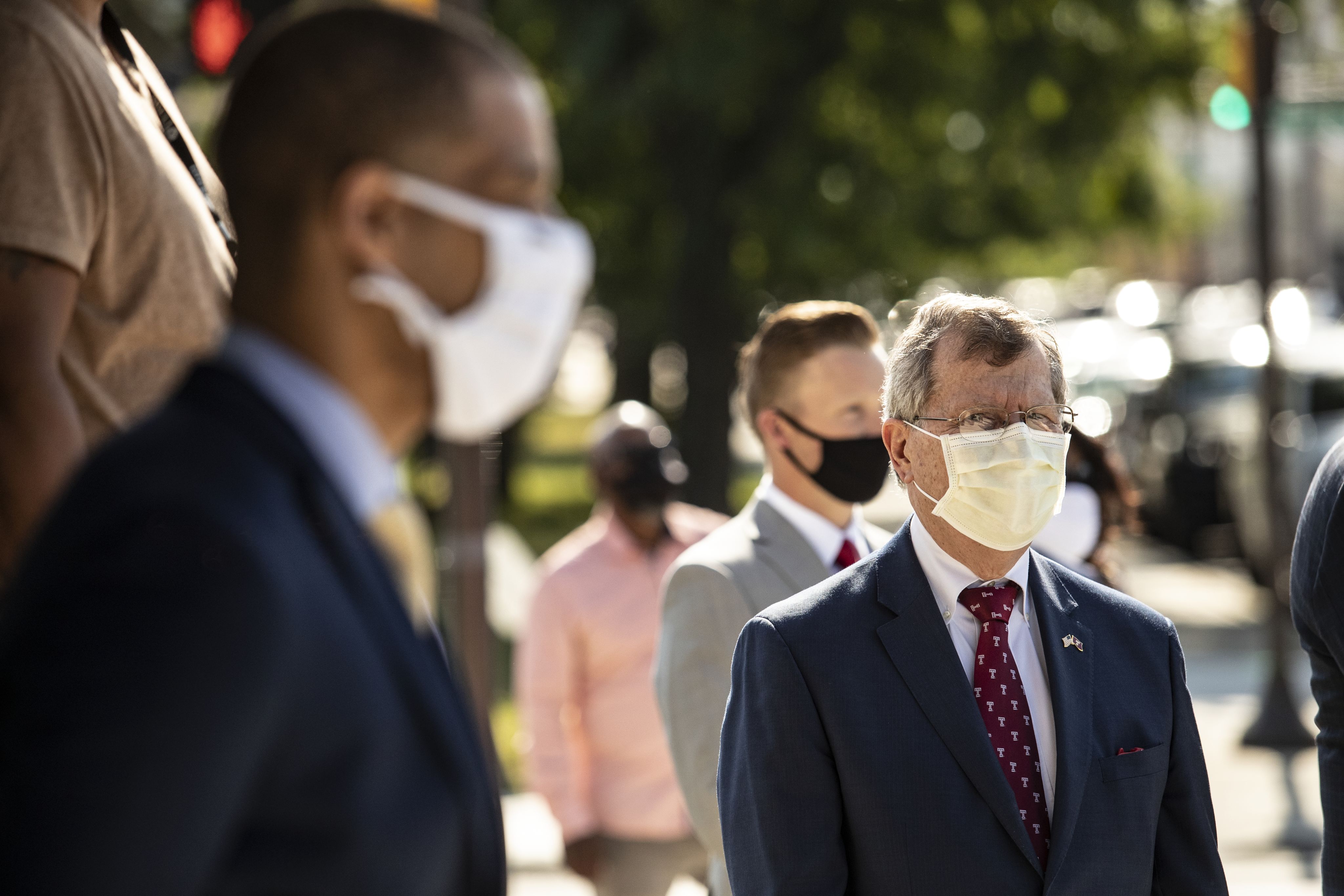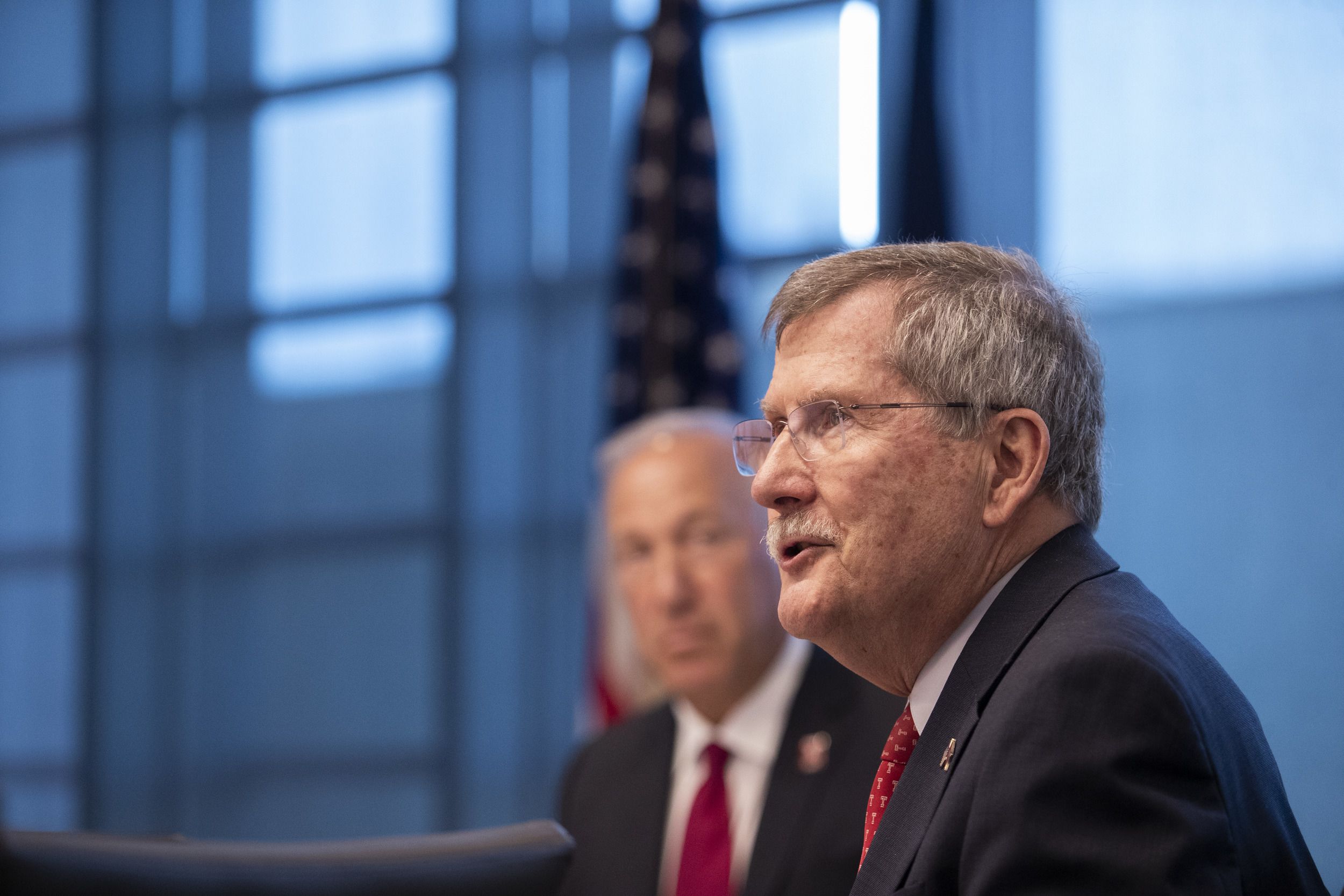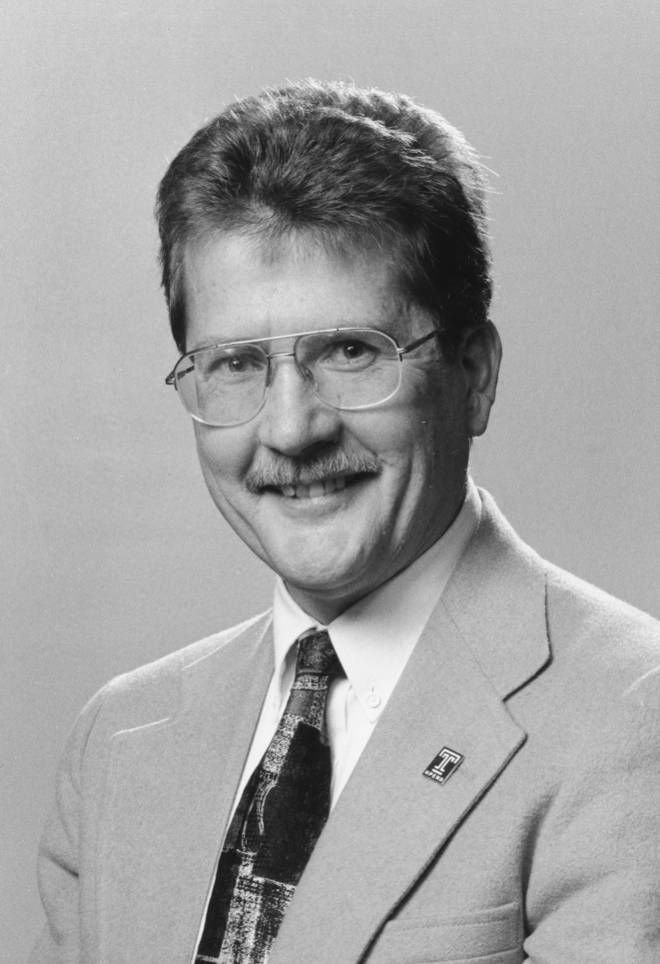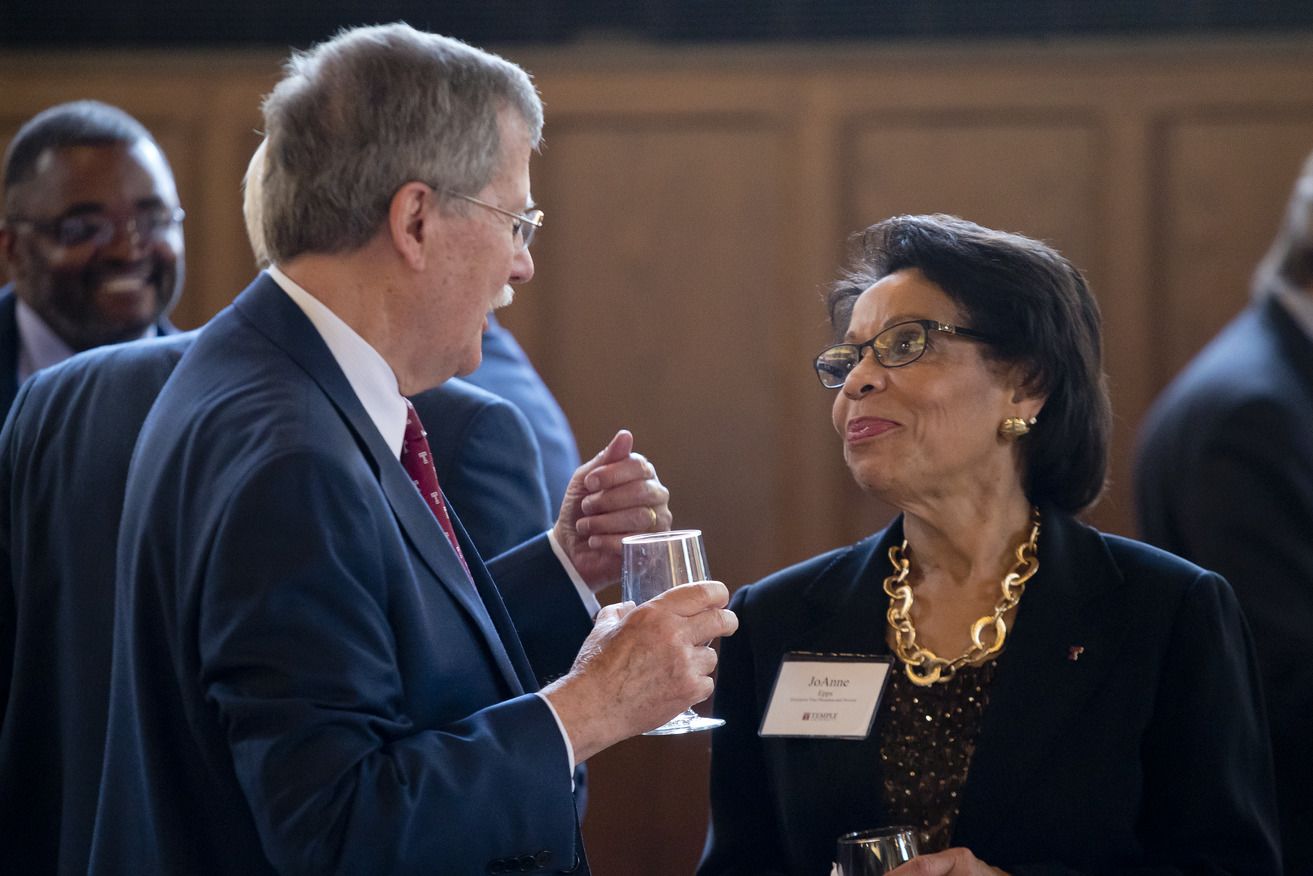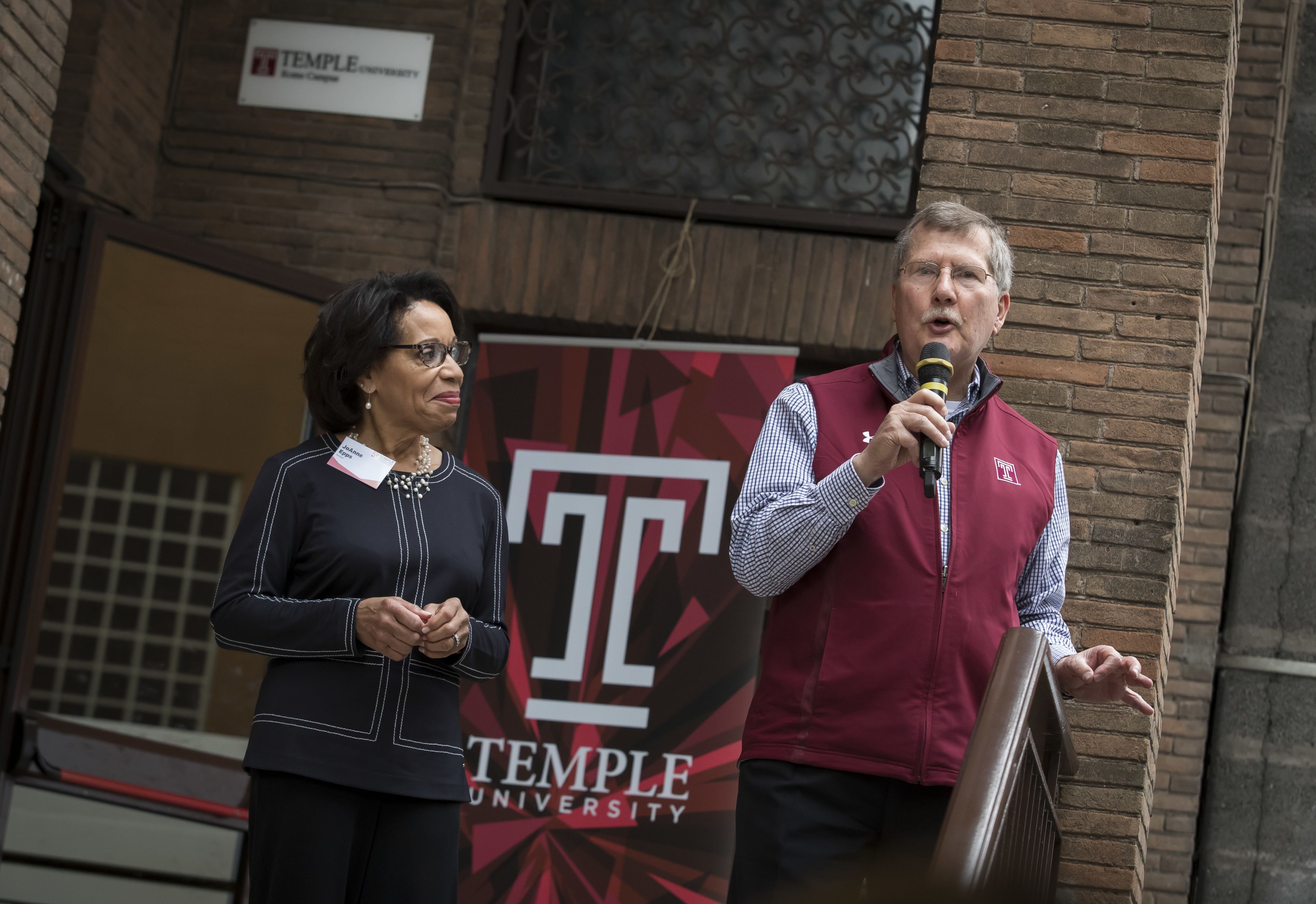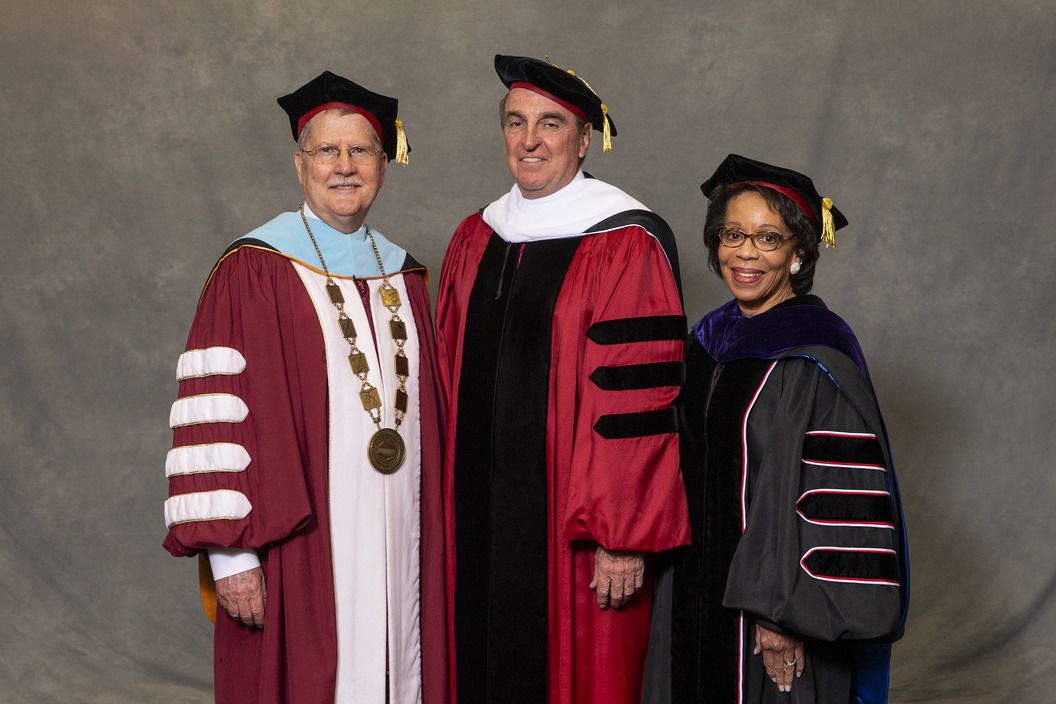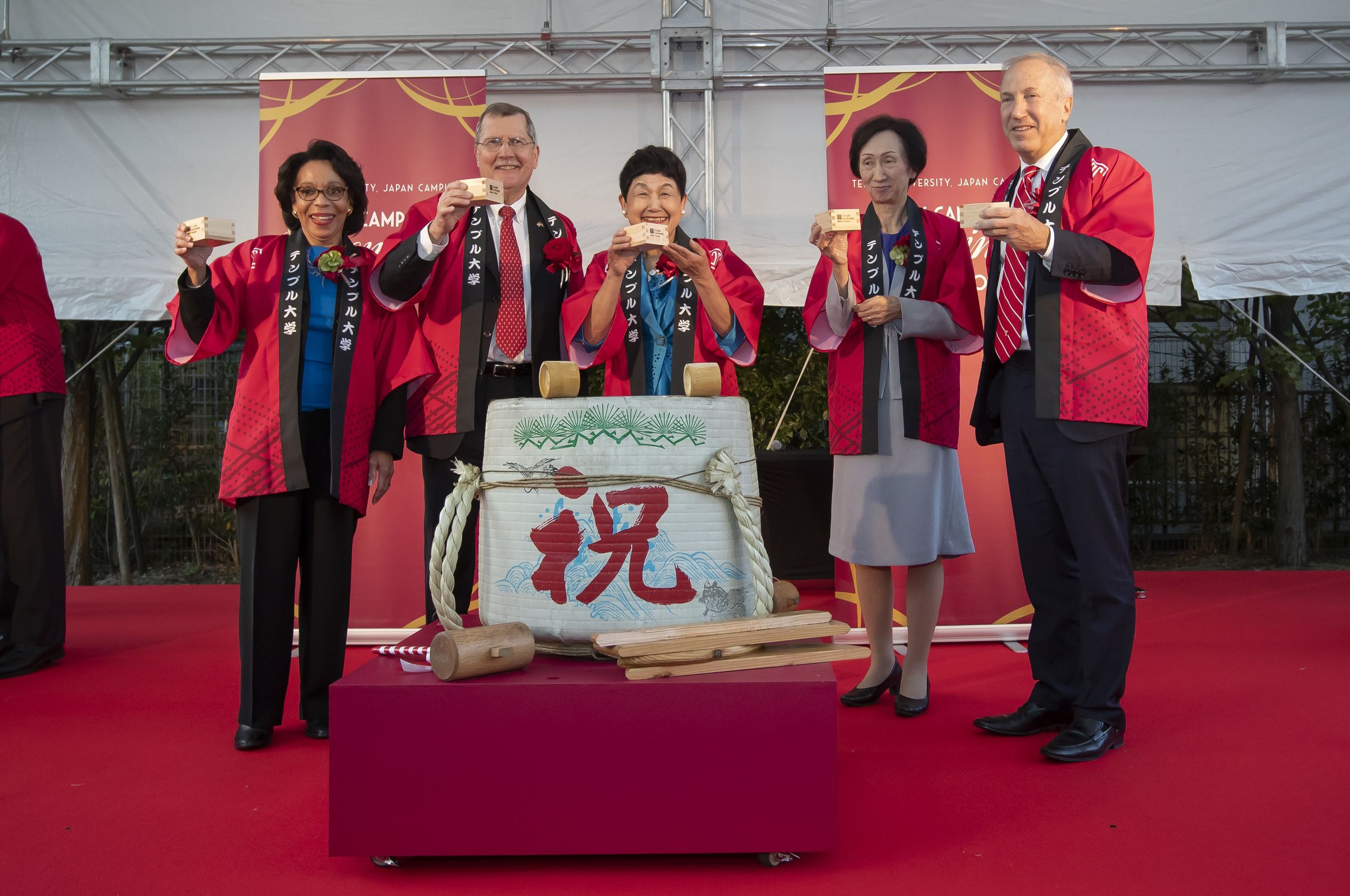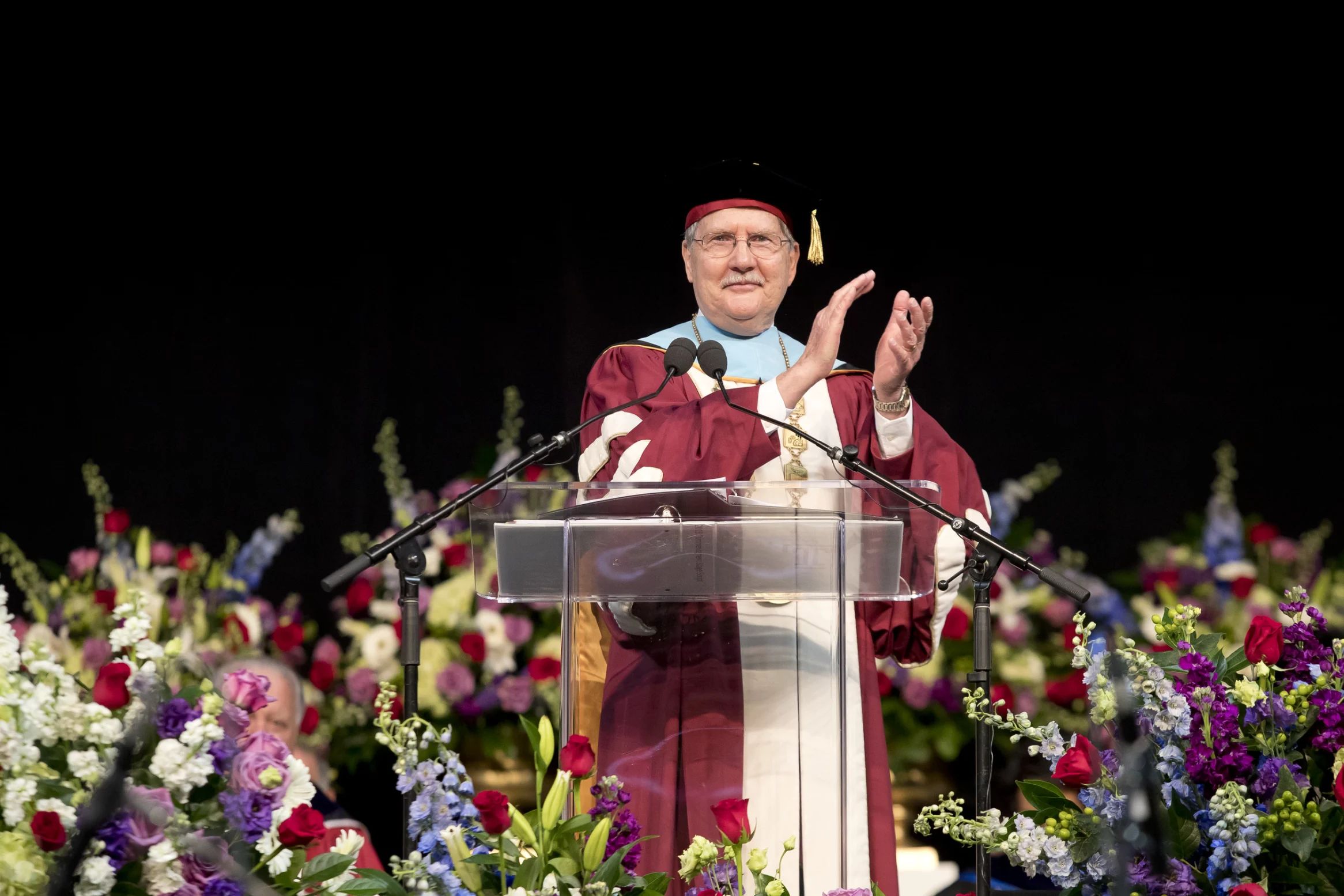Thank you, President Englert
For nearly 50 years, Richard M. Englert has served the Temple community. His final day as president will be Oct. 31.
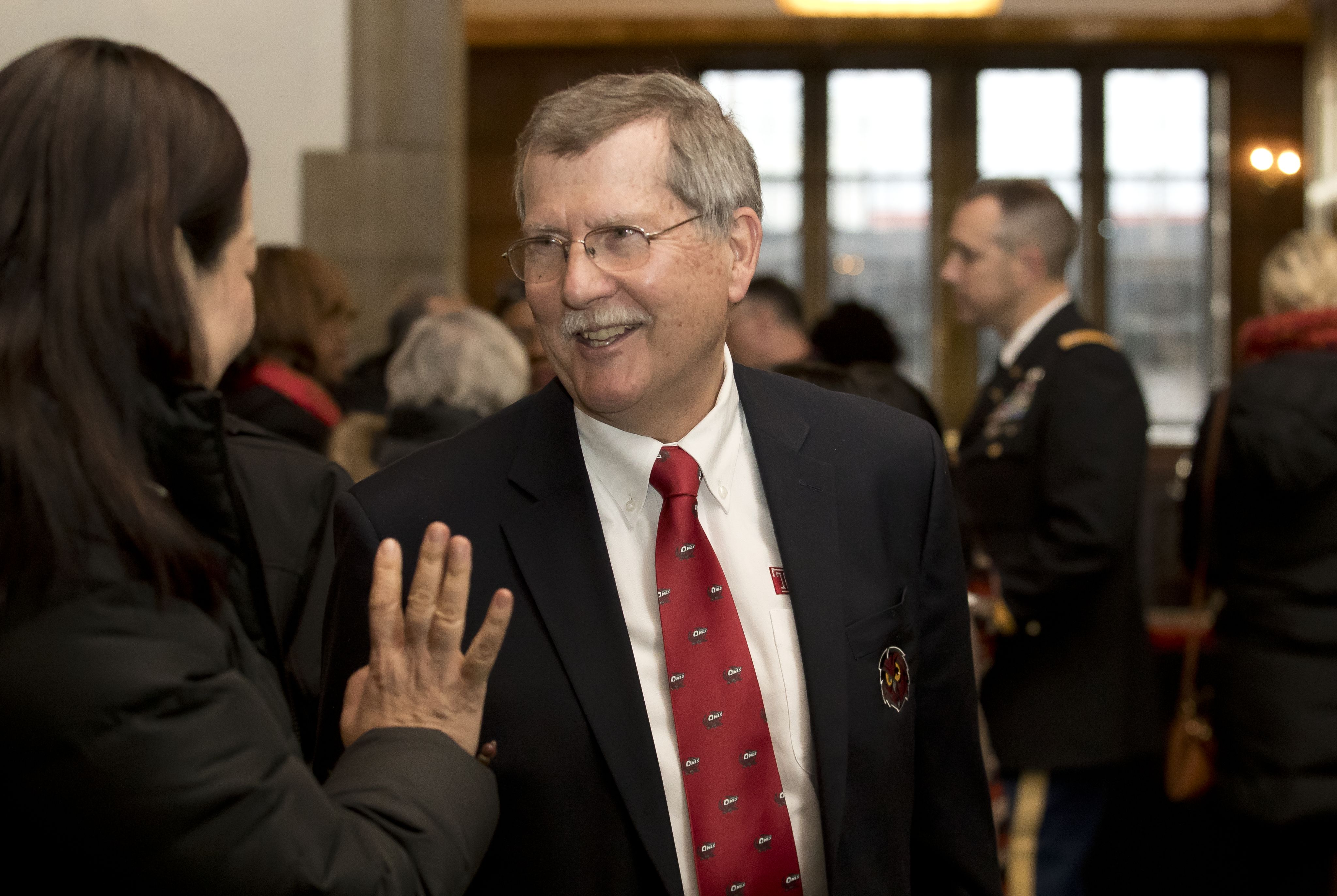
Whether he is delivering opening remarks, sending a universitywide message or speaking casually with a colleague, Temple University President Richard M. Englert has a common way of ending nearly every conversation or communication.
“Thank you for all you do.”
For Englert, it’s an opportunity to let each member of the Temple community know that they are appreciated. After all, Temple, as described by Englert, is a family, and it does not operate effectively without all its members—every student, faculty and staff member—doing their part.
“That has always been very important to me,” said Englert during a recent interview where he took time to reflect on his nearly 50 years spent at Temple. “You must let people know that they are valued and thank them for their contributions. Number one, it makes people feel good. But number two, there's truth to it.
“I learned quickly that the best ideas here at Temple come from the people. It’s the faculty and the students who are the real people who live the mission of this university,” Englert added. “And I’ve always seen my role as one to support them and make things easy for them. They are the people who deliver the mission that makes this place go.”
The irony, of course, is that few figures in the history of this institution have done more for Temple than Englert. In his 48 years spent at the university, he has held 17 different positions and has served as its president on three separate occasions.
He has taken the reins as president during some incredibly trying times, yet he always ended up leaving the seat much better than he found it. Despite that, he is never one to sing his own praises, preferring to instead recognize the efforts of others.
“(He) is the embodiment of steadfast leadership,” said Val Harrison, vice president for diversity, equity, inclusion and community impact and a longtime colleague of Englert’s. “Across four decades, three times as president and in countless other roles, he anchored the institution through both calm and storm, navigating the complexities of higher education with precision and grace. His measured decisions, always wrapped in kindness, provided the stability Temple needed to weather its challenges. Serving alongside him for over 20 years, I witnessed firsthand how his type of selfless dedication changes lives for the better.”
“His kindness and humility are unmatched,” added Mitchell L. Morgan, chair of Temple’s Board of Trustees. “Dick is always quick to pass the praise, but the reality is that he has served as president during some of the most prominent times in Temple’s history. Case in point, our enrollment reached its peak under his leadership. Simply put, Dick knows how to bring out the best in people. I can attest to that through my time spent working closely with him while serving on the board.”
Arriving (and staying) at Temple
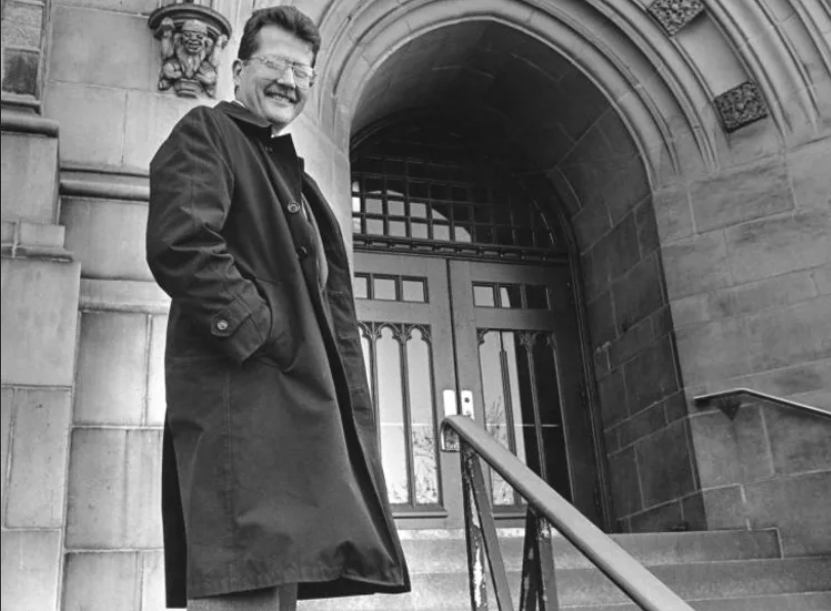
In 1976, Englert first arrived on Temple’s campus after accepting the role of assistant to Jay D. Scribner, dean at the university’s College of Education. Englert was recruited to the role by the dean, as the two had worked together on a federal project in California while Scribner was a faculty member at UCLA.
Englert, who had previously been an elementary school teacher, arrived at Temple with no previous higher education experience. He had also just married his wife, Ellie, a little more than two years before making the move.
“I didn't know anything about Temple, but I fell in love with this place really quickly,” Englert recalled.
The College of Education and Human Development is where President Englert started at Temple as assistant to the dean in 1976.
The College of Education and Human Development is where President Englert started at Temple as assistant to the dean in 1976.
Englert admitted that there was a time, early on, where he nearly departed the university that he would later become so synonymous with.
"A few years after I had been here at Temple, I applied for a couple fellowships in Washington, D.C., and I ended up getting them. I told Jay about that, and he said, ‘OK, well, I'm going to make you associate dean, so why don't you stay here?’ So, I became associate dean, and I stayed here at Temple and at the College of Education,” Englert said.
The official title of the role that Englert assumed was associate dean for administration and management, and it is one of the 17 different positions he has held at Temple. Some of the other more prominent ones include dean of the College of Education, provost, vice president for administration and acting athletic director.
President Englert meeting with members of the PA Task Force in 1999.
President Englert meeting with members of the PA Task Force in 1999.
Few people have worked more closely or longer with Englert than Temple’s Senior Vice President and Chief Operating Officer Ken Kaiser. He has witnessed Englert’s contributions at Temple over the years firsthand and is one of many university leaders who remain thankful to the late Scribner for convincing Englert to stay at Temple so many years ago.
“We’re all deeply grateful for Dick’s unwavering dedication to Temple over the past 50 years. Under his leadership, Temple has been transformed into a prestigious R1 national university, with a world-class health system,” Kaiser said. “On a personal level, I am profoundly thankful for the invaluable lessons I’ve learned from him over the years, but more than that, I treasure the friendship we’ve built.”
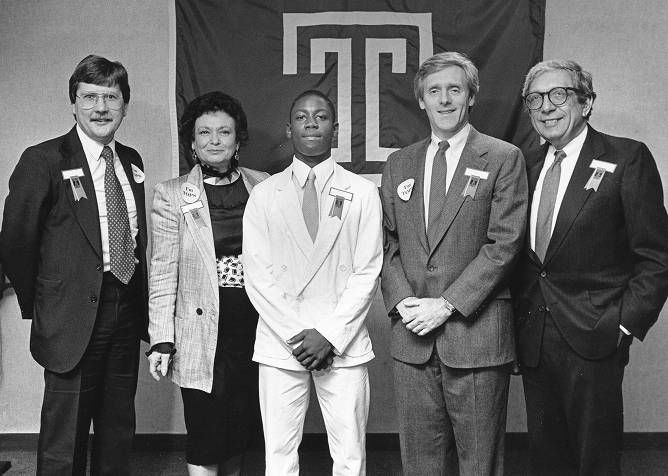
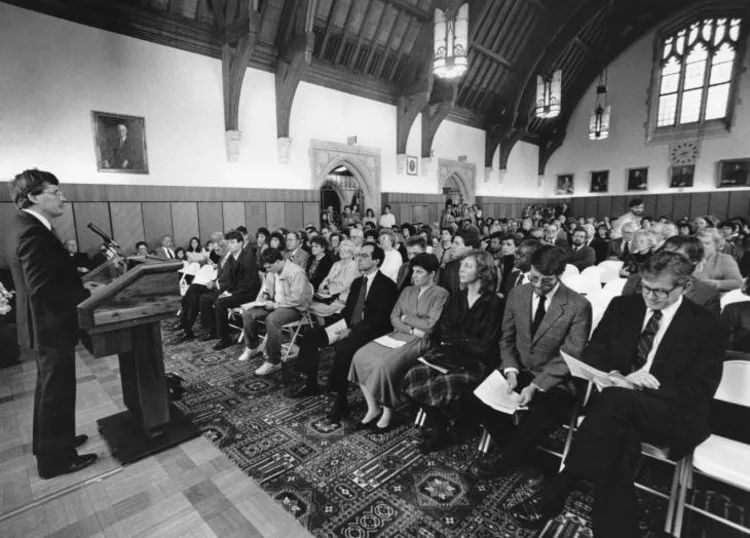
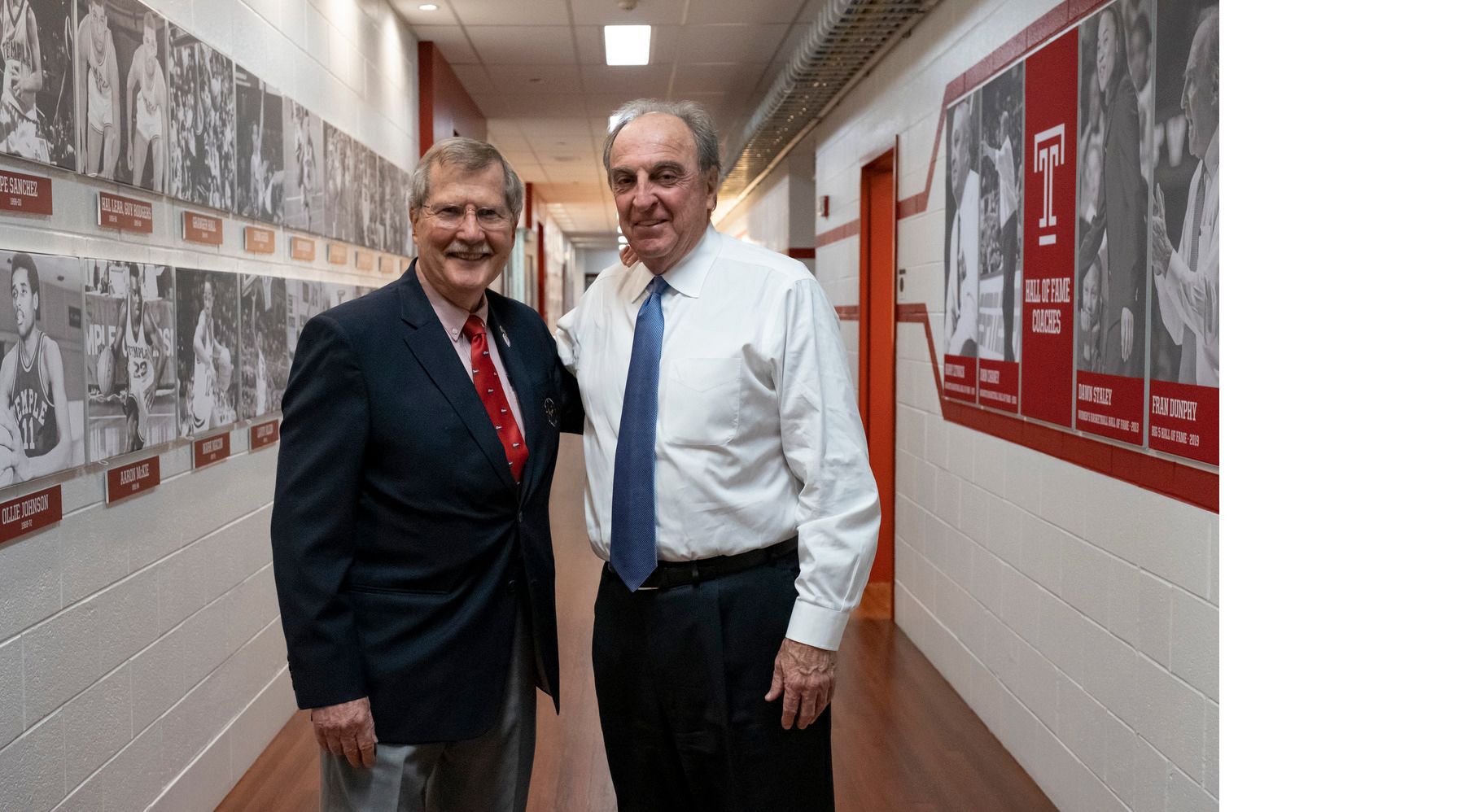
‘The secret sauce’
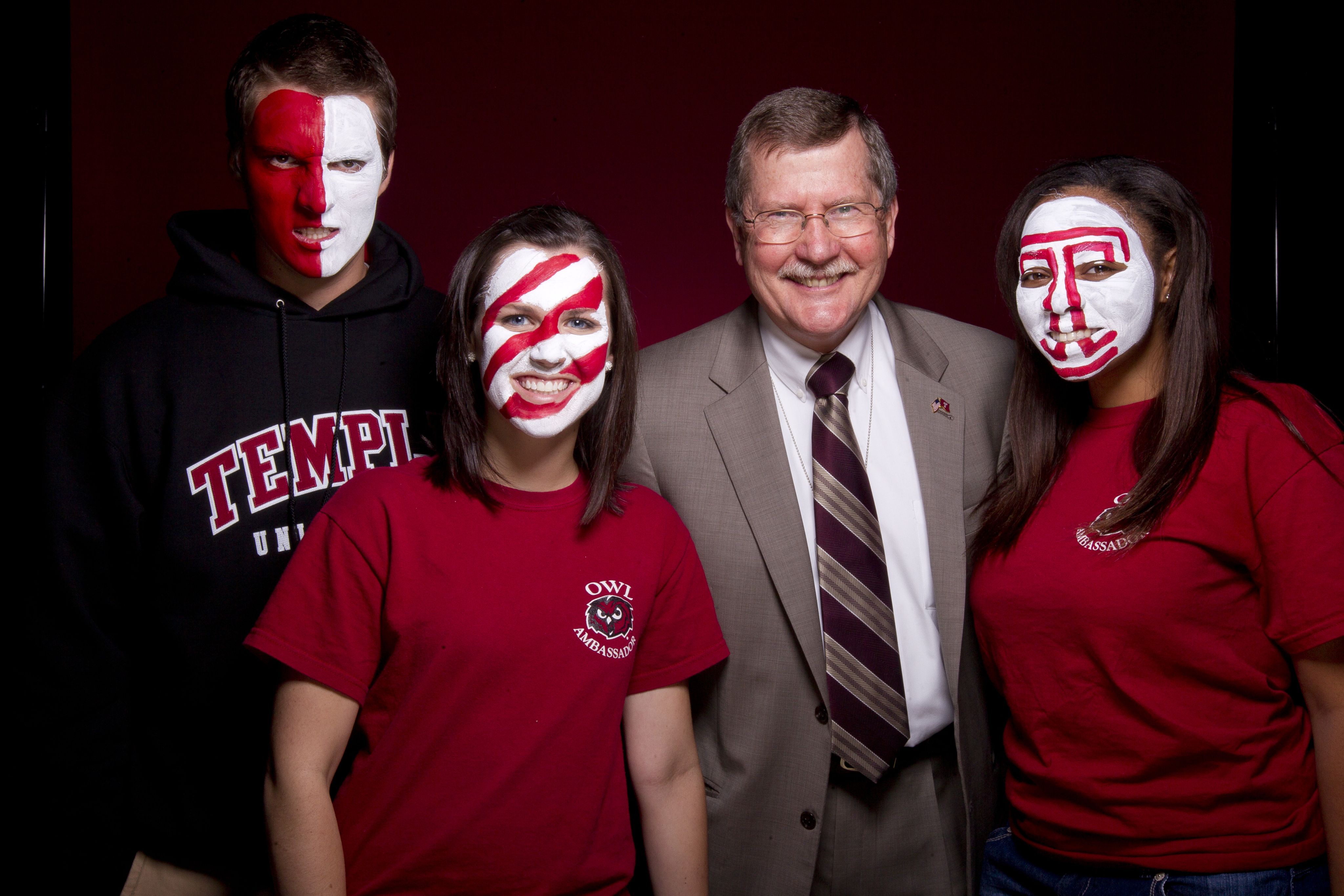
Take a walk across campus on any given day and there is a good chance that you might run into President Englert. His strolls across campus have been a constant of his tenure at the university as he takes pride in being not just visible but also approachable.
And, more than anything else, he loves stopping to chat with students along the way.
“Our students are the best. They have so much grit and they're so ambitious, and they really do go on to change the world,” Englert said. “I have written many letters of recommendation for students, and I am so proud and honored when I get to do that. There is nothing better than that.”
“He has always understood that each student at Temple has their own journey and their own purpose, and that they each have an important part to play in the story of this incredible university,” said Englert’s longtime colleague Robert Stroker, vice provost for the arts and dean of Boyer College of Music and Dance and the School of Theater, Film and Media Arts.
Englert is also a frequent visitor to Temple Athletics events. Over the past year, while serving as president, he made sure that he saw every team compete at least once.
Two of the individuals that Englert and his wife most enjoy watching games and competitions with are their longtime friends Debbie and Stanley Lefkowitz, CST ’65.
“Dick has been a stabilizing influence for Temple, and he is a strong advocate for all that the university represents,” said Stanley Lefkowitz. “Wherever he goes, he constantly displays his Temple pride. Debbie and I always enjoy sharing with him the many accomplishments of the members of the Temple community (students, faculty, alumni and staff). Even after he steps down as president, I know we can continue to count on Dick to serve as one of Temple’s biggest supporters.”
Englert also considers himself to be the No. 1 fan of the Temple University Diamond Marching Band. It is fair to say that he is the No. 1 fan of just about everything Temple related.
“Dick’s secret sauce is that he assumes the best of everyone he meets—and he meets everyone,” said Weegie Esten, vice president and chief of staff. “I have known Dick for many years, but it has been a special privilege to work closely with him over the last year. He embodies Temple’s mission and reminds all of us that our students are the reason we’re here. He is always so positive and optimistic; his glass is always half full.”
Englert’s positive outlook has served him well, especially when dealing with any number of situations that arise for a university president, such as faculty union negotiations. He never let himself get too high or too low, and he never took things personally.
“That is something where you would always see some folks get really excited, and I would remind them, ‘OK, let’s take it easy,’” Englert said. “We always would work through it and eventually, we would come to a resolution and have a new contract.”
“As it pertains to faculty, some of his strengths include his genuine understanding of the university system, his appreciation of academic issues like academic freedom and shared governance, and his strength of character,” said Shohreh Amini, president of the Faculty Senate and professor of biology in the College of Science and Technology. “He has proven himself to be an outstanding leader. The challenges he has faced have been at times daunting, but he has met every one with intelligence, grace, integrity and common sense.”
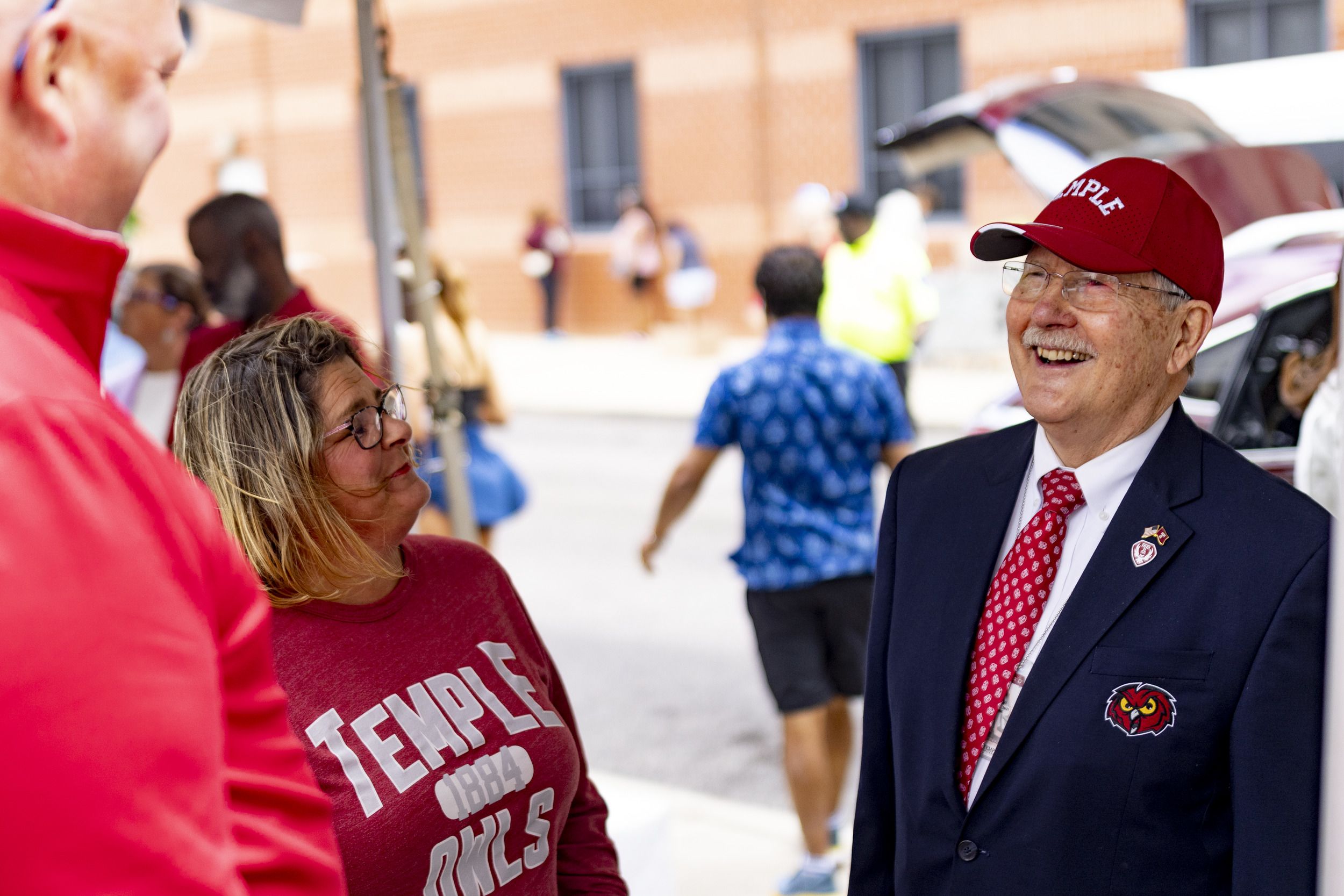
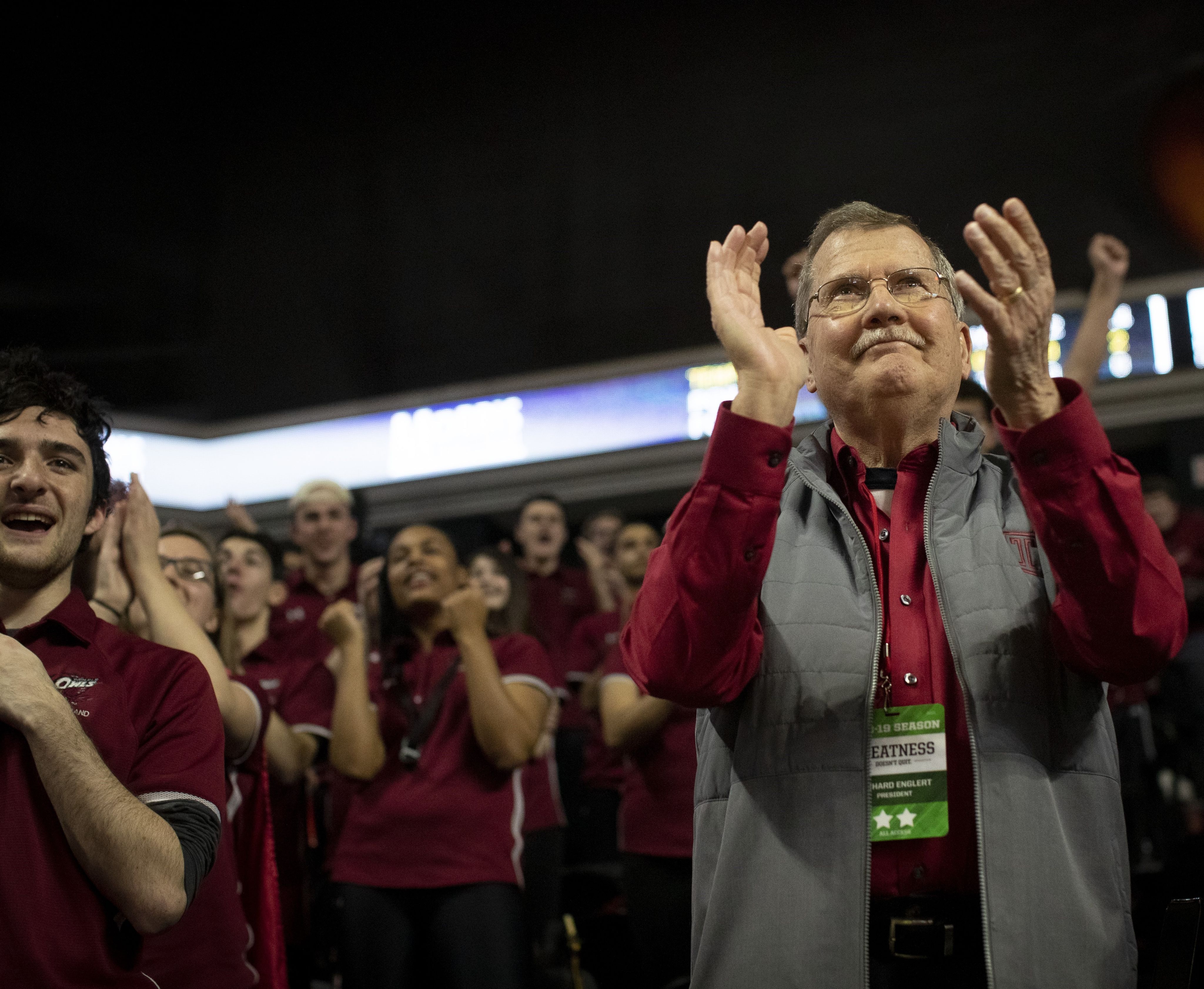
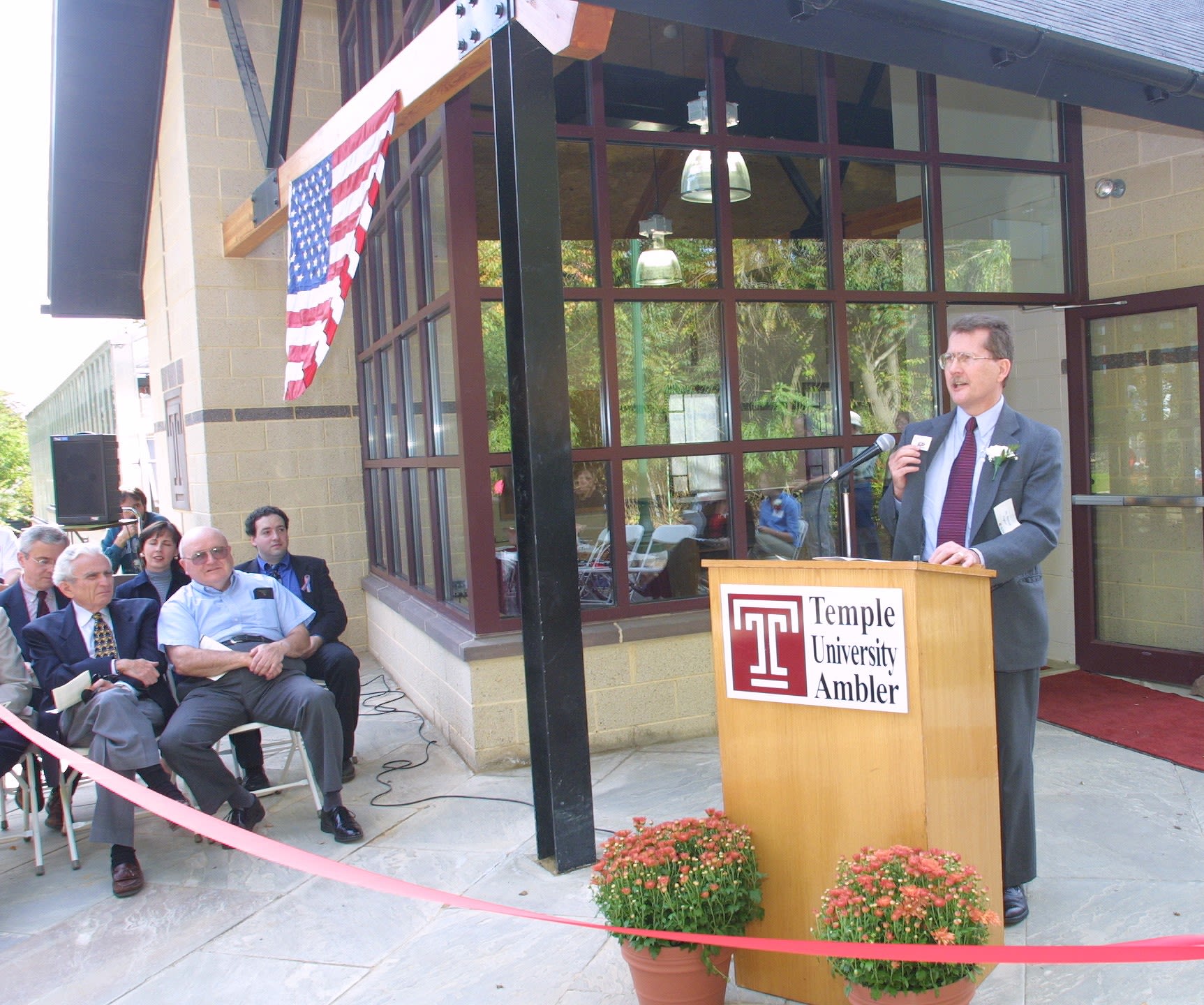
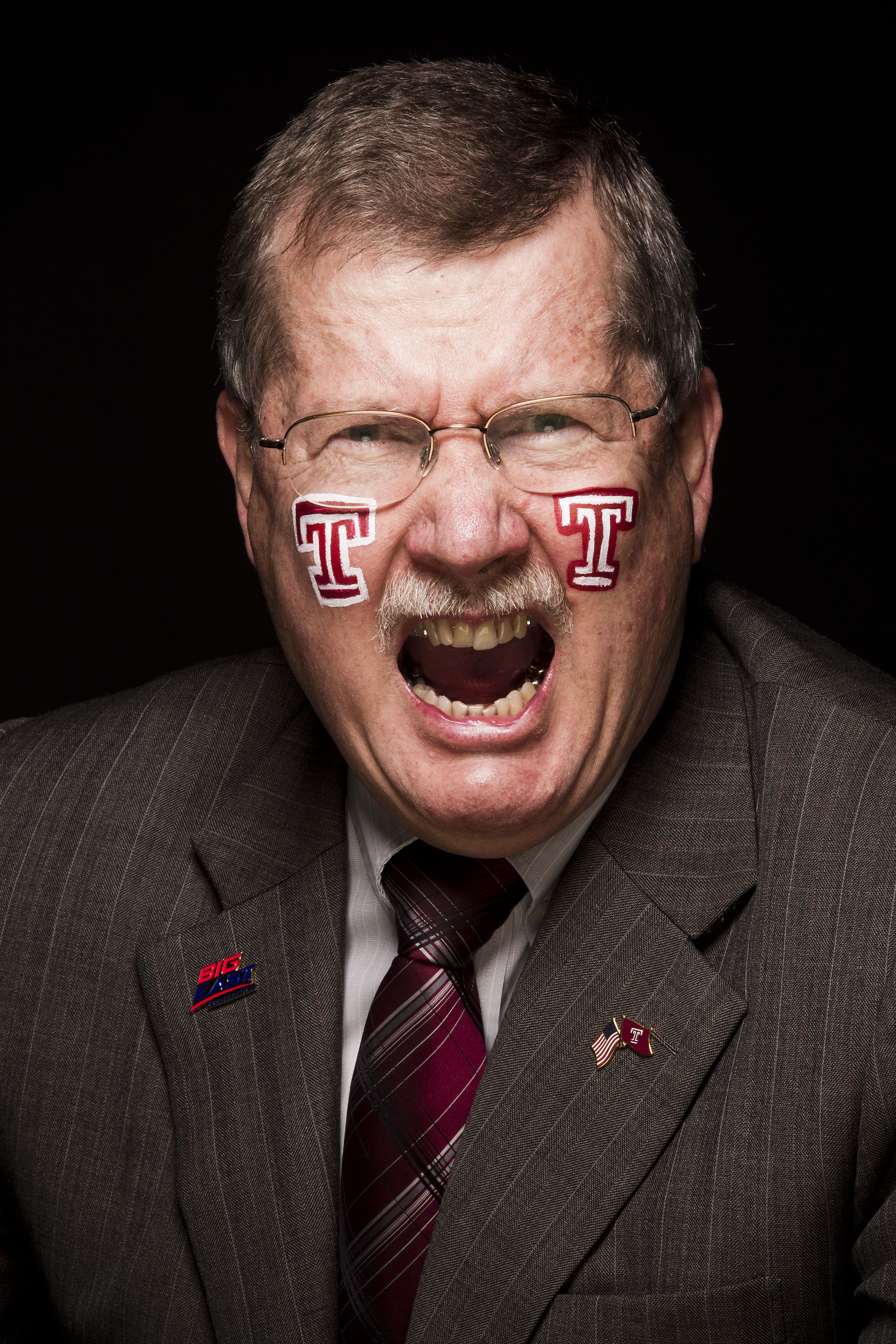

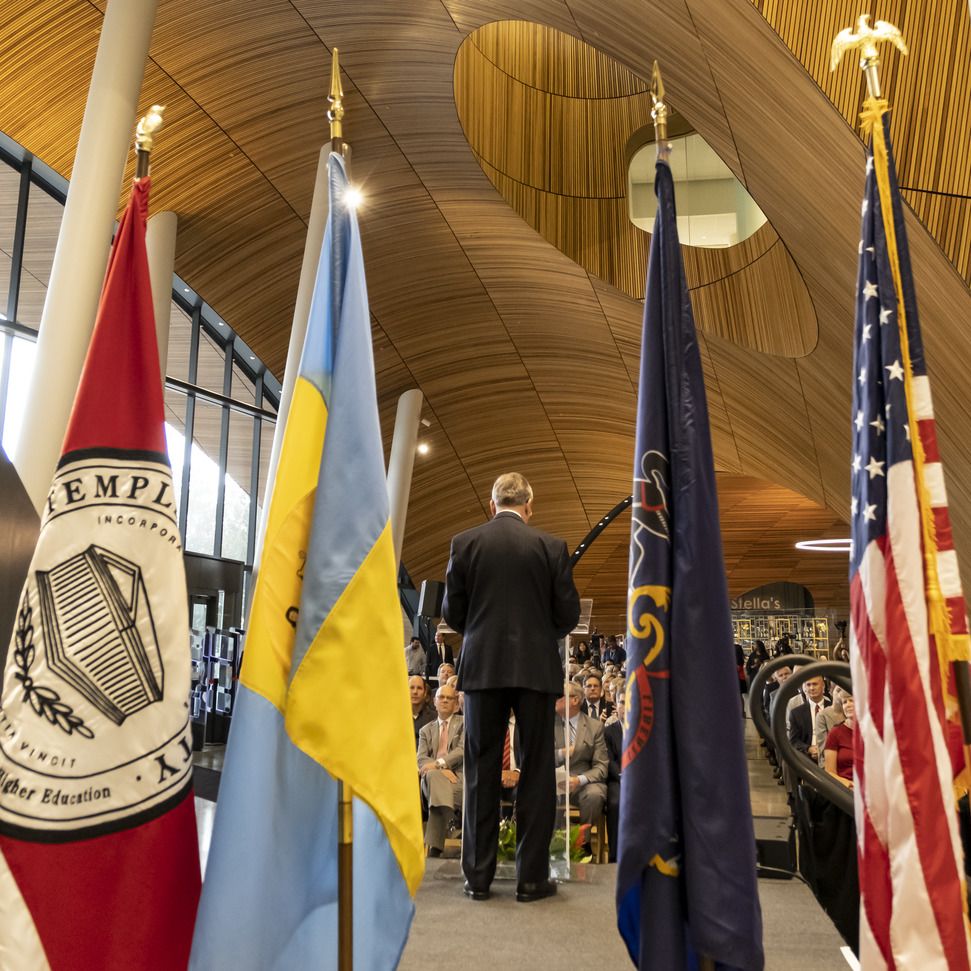
Doing 'the right thing’
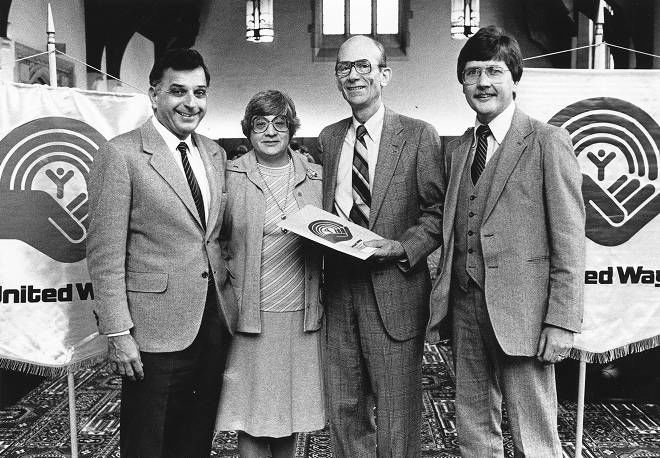
In reflecting back on his time spent as Temple’s president, Englert recalled that some of the most difficult times were also the instances where he was most proud to serve as Temple’s leader.
Specifically, he remembered when the world was thrown upside down due to the COVID-19 pandemic, and he received a call from then-Philadelphia Mayor Jim Kenney.
“He said, ‘Look, we need to have a place where we can put an emergency COVID-19 hospital. I've been turned down twice already. Can Temple help us?’” Englert recalled. “I said to him, ‘Absolutely. We have the Liacouras Center, and we can help. I called (Board Chair) Mitch Morgan right after that, and he said, ‘Absolutely, we're going to help.’ We didn't bat an eye, and we didn't ask for details on finances. The city was in trouble, and we're a public university with a public mission. Of course we're going to help.”
For Englert, setting up an emergency surge hospital for the Federal Emergency Management Agency (FEMA) was an easy decision. It was simply the right thing to do.
That same principle has guided Englert consistently throughout his time at Temple. Even when the university has gone through its challenges, Englert has always fallen back on doing what is right.
A recent example was in the wake of the closing of the University of the Arts.
“As soon as we heard that UArts might be closing its doors, we talked with their leadership and said, ‘What can we do?’ And then, we got started. Why? Because as a public institution in the Commonwealth and the City, with a strong reputation in arts education, we were well-positioned to jump in and help. And we knew that this was a situation where our region needed us to take a leadership position. That was true during the pandemic, and it was true in the face of the potential loss of a major local institution,” Englert said. “Our staff and faculty worked tirelessly to help the UArts community, and we were the first university to announce that we would welcome its students. We have gone the extra mile, and we ultimately welcomed 359 of their students. I am so very proud of that.”
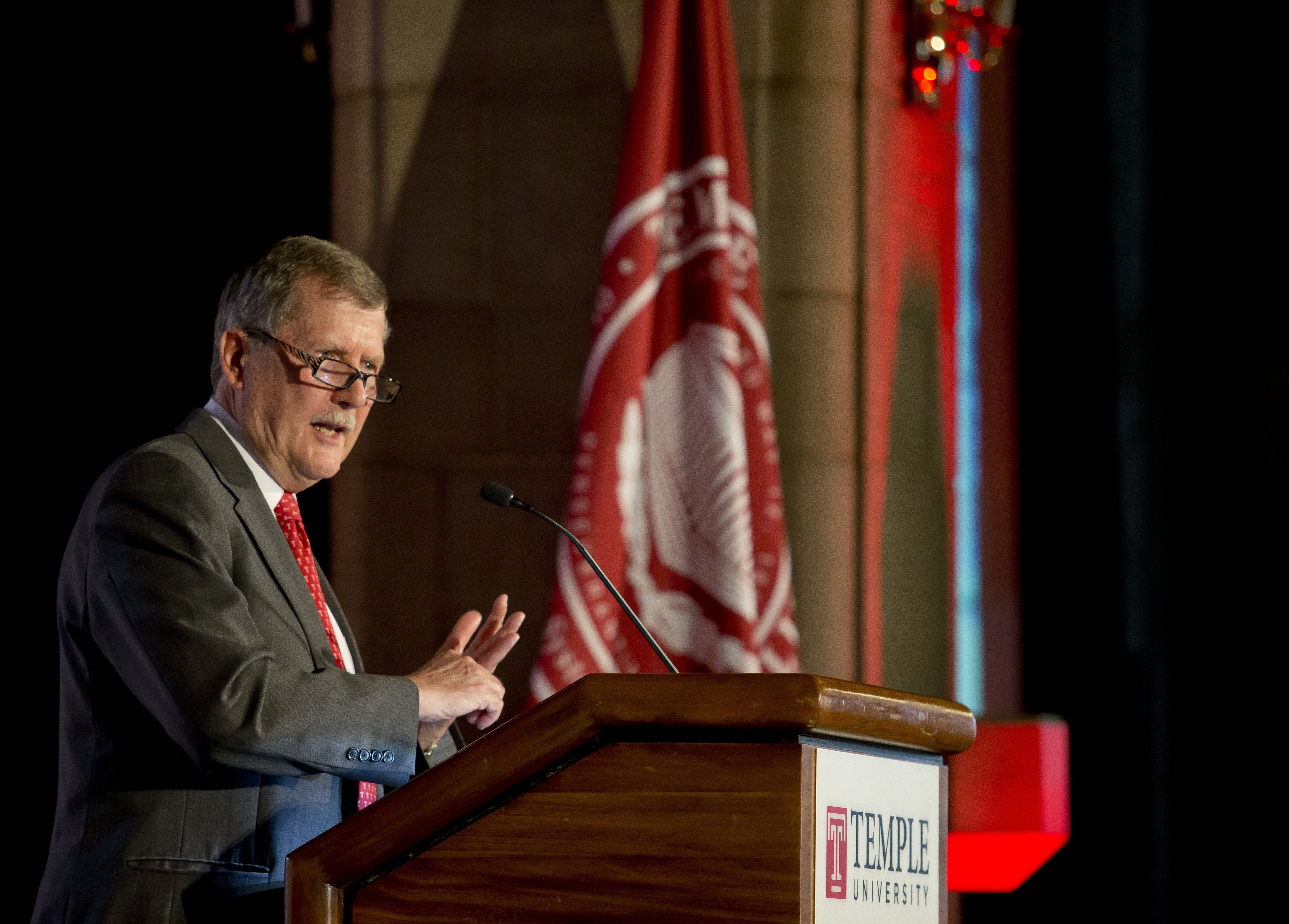
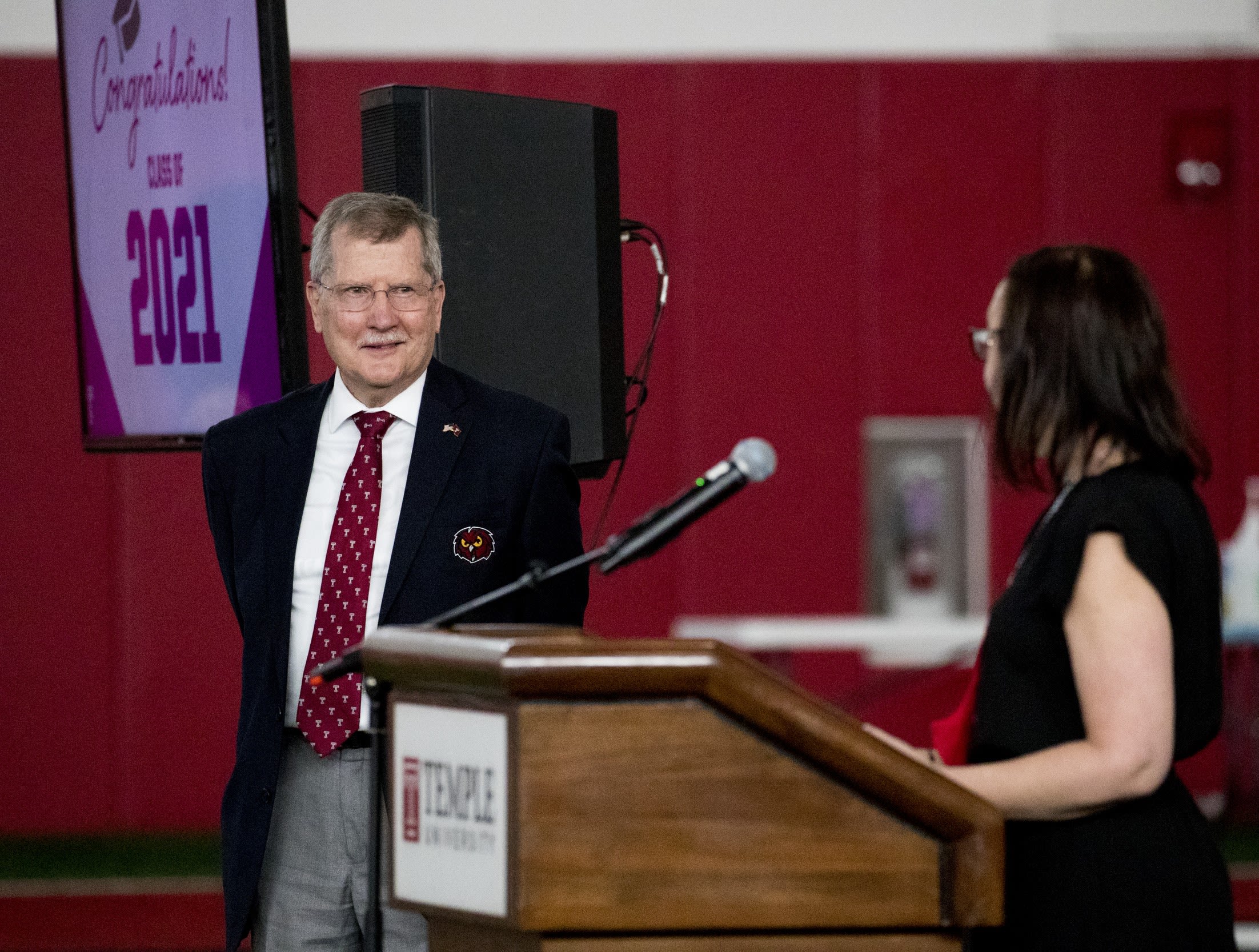
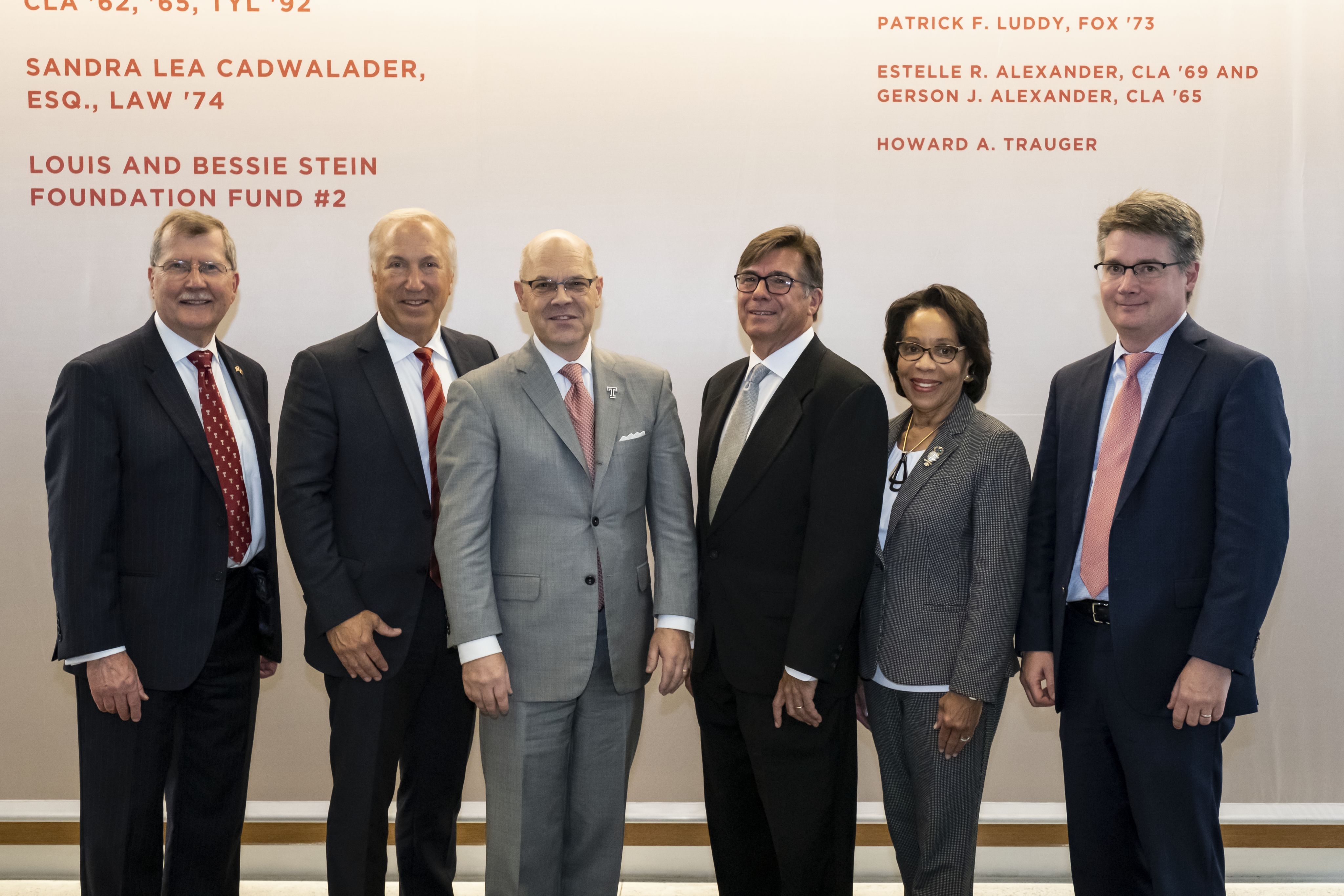
The third priority
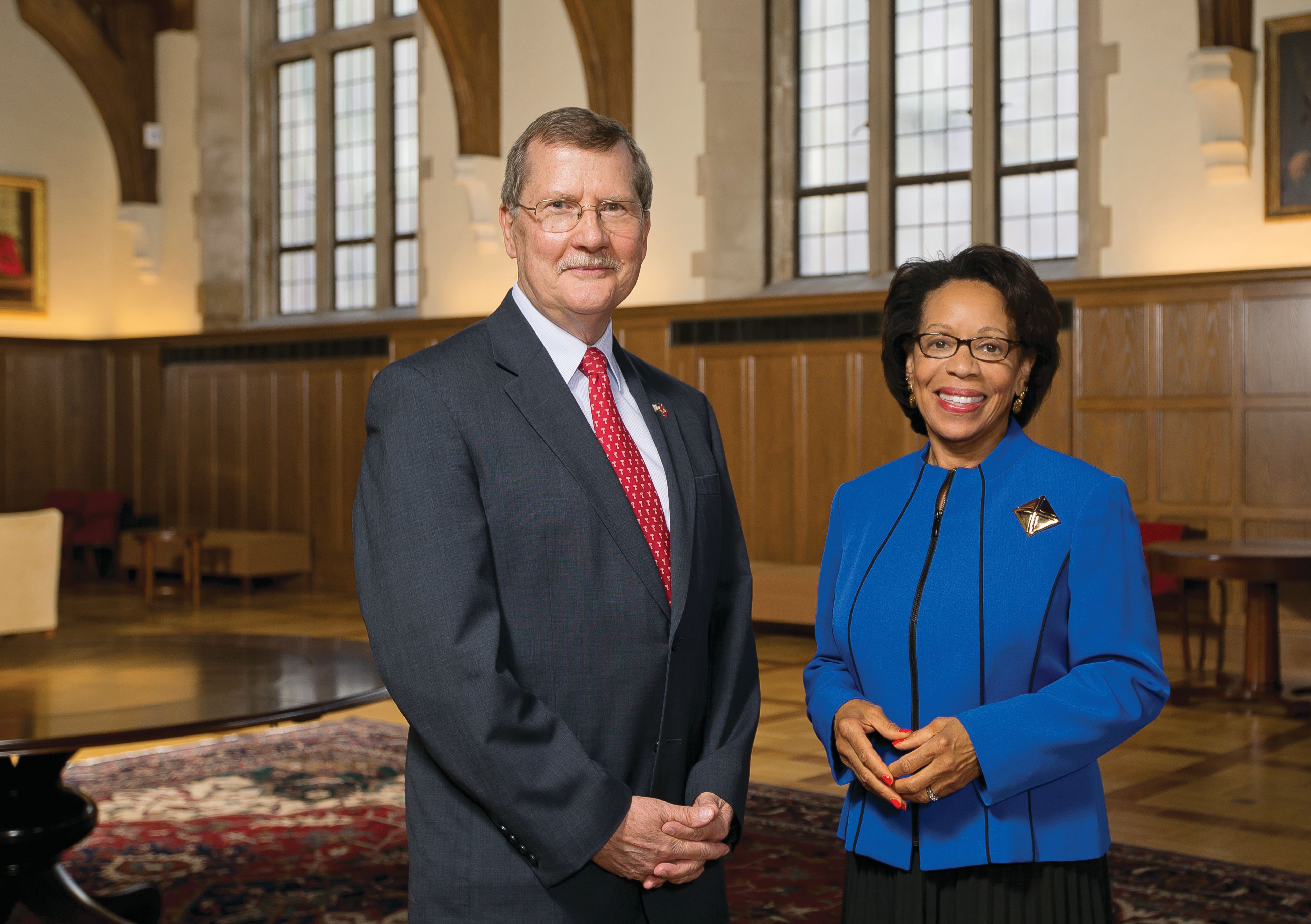
Englert’s current tenure as president began in the wake of one of the darkest days in Temple’s history. On Sept. 19, 2023, then-President JoAnne Epps, a beloved Temple figure in her own right, passed away suddenly.
Epps and Englert were exceptionally close. During his presidency from 2016 to 2021, Epps served as provost, and together, they led the university during what are arguably viewed as some of Temple’s most prosperous years.
“She was just an amazing woman. We worked together in so many ways and in so many different roles, and I just fell in love with her, her values and what she cared about,” Englert said. “There is no one else like her.”
When he was named president again on Sept. 26, 2023, Englert made clear that he would continue the work that Epps had started. Epps’ priorities of enrollment and public safety were now Englert’s priorities, as well. He also identified a third priority, and it is one that he has continually emphasized during the past year.
“Honoring JoAnne and her legacy were very, very important to me. That became my third priority,” Englert said.
Over the last year, Temple has made significant strides with regard to both enrollment and public safety. This fall, Temple welcomed more than 4,900 new first-year students and nearly 1,300 new transfer students, which represents a 30% and 29% increase over the previous year, respectively.
The Department of Public Safety has also launched several new initiatives and enhancements.
According to Englert, Temple’s successes can be traced back to Epps.
“We have been successful because of the groundwork that she laid,” he said. “She started us on this path, and we have followed through, but there is no way we would be in the position we are today had she not started this work.”
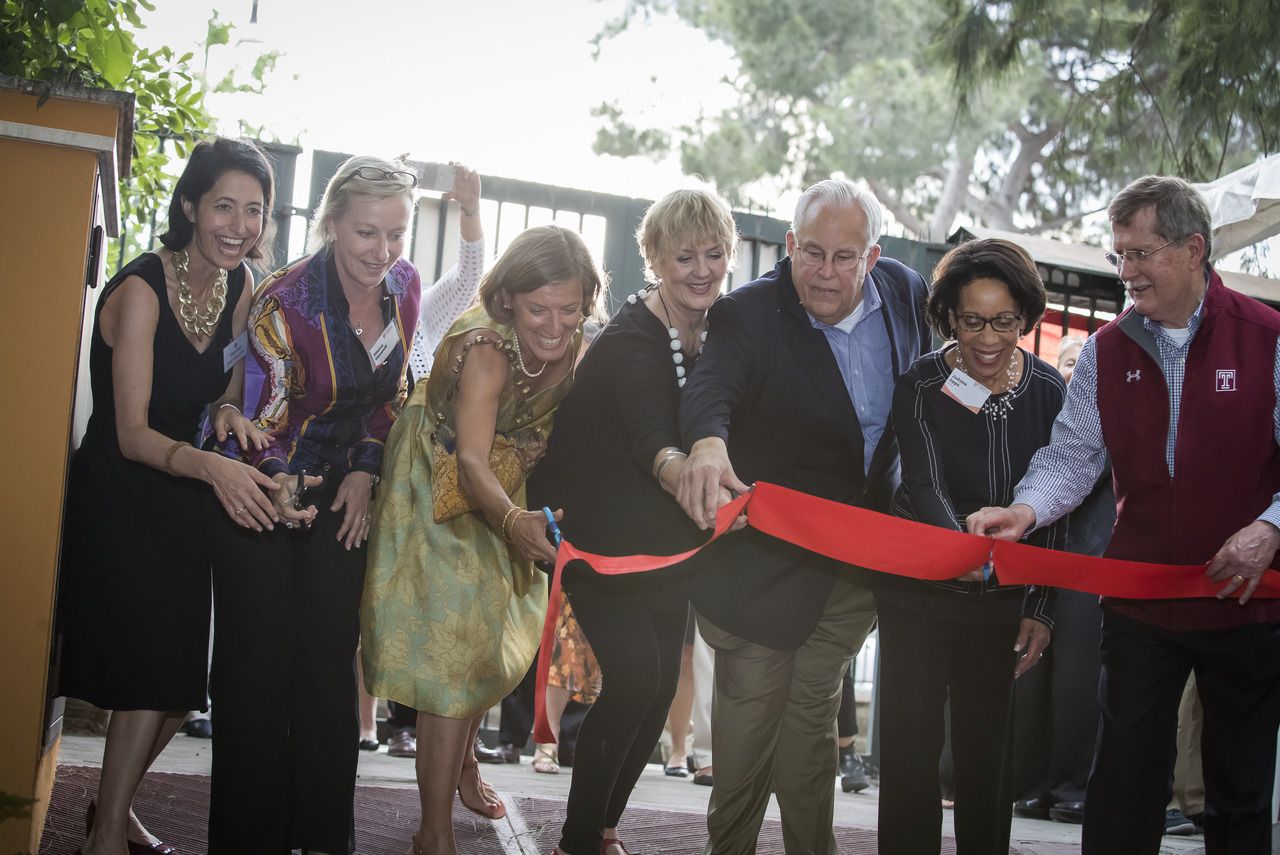
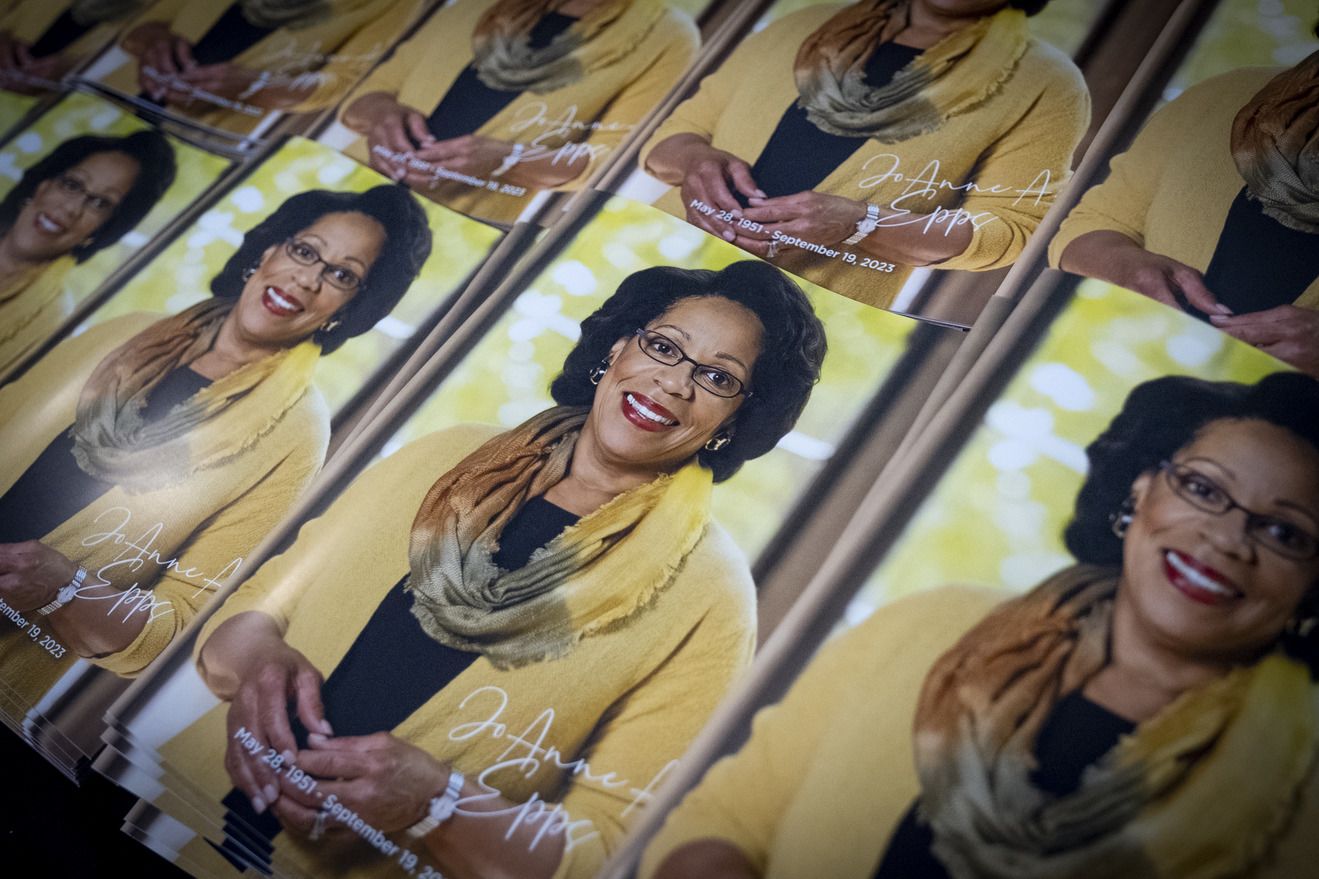
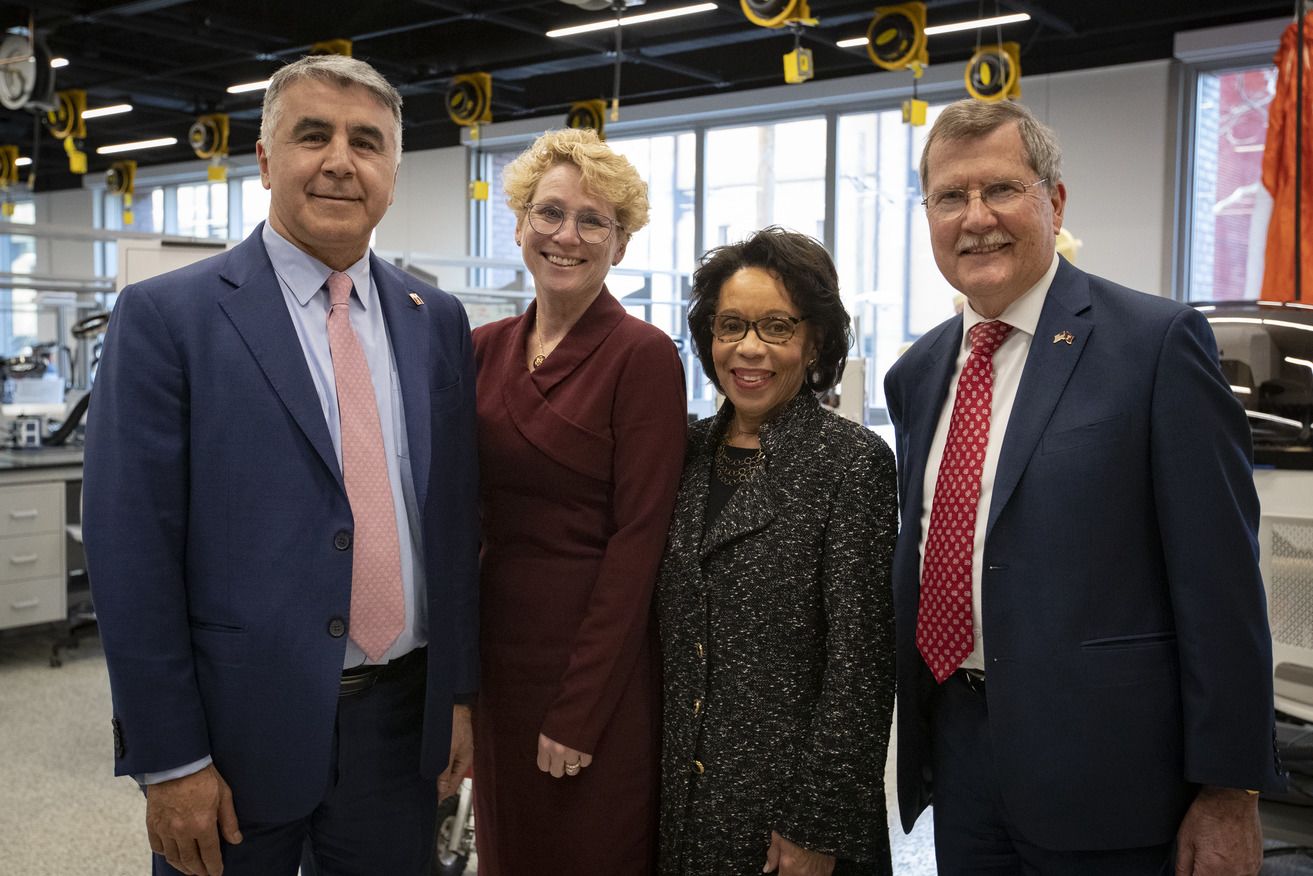
Returning to the role of chancellor
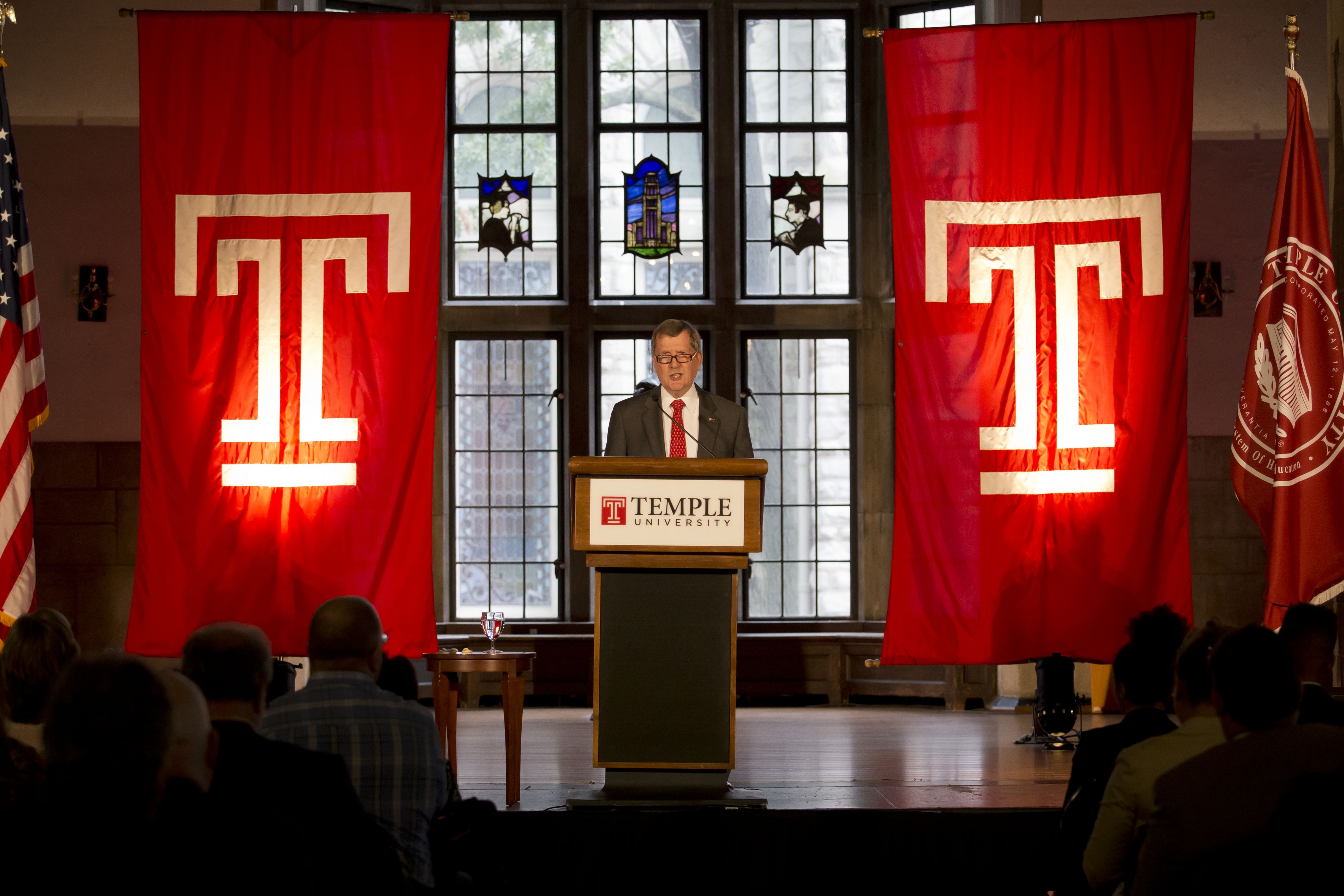
Englert’s final day as president will be Oct. 31. Following that, he will once again return to the role of chancellor, the same position he held after previously stepping down as Temple’s president at the end of June 2021.
Soon, he again will be back in the classroom teaching students, which continues to be one of his greatest passions. In the immediate future, however, he plans to assist President-elect John Fry during the transition process. Fry officially takes office as Temple’s 15th president on Nov. 1.
“I am here to help in any way that I can. In whatever capacity President Fry needs me, I’m absolutely dedicated,” Englert said. “He’s the best, and I can’t think of a better person to be named Temple’s president. I’ve known him for years, and we’ve worked together on many things, and I know he will be great for Temple.”
As he prepares to step down as president, Englert looks back at his time at Temple fondly. He is ready to begin a new chapter and is eager to spend more time with his wife—the couple recently celebrated their 50th wedding anniversary.
“It's really been an honor. I wouldn't have predicted any of this,” Englert said. “I want to thank my wife, Ellie, who is probably the person who the university owes the most to. She’s committed as much, if not more, than I have in serving as Temple’s president, and she has just been terrific. I am very excited to spend some more time with her.”
And as Englert prepares to move on to his next chapter, the Temple community has these words for him: Thank you for all you do.

